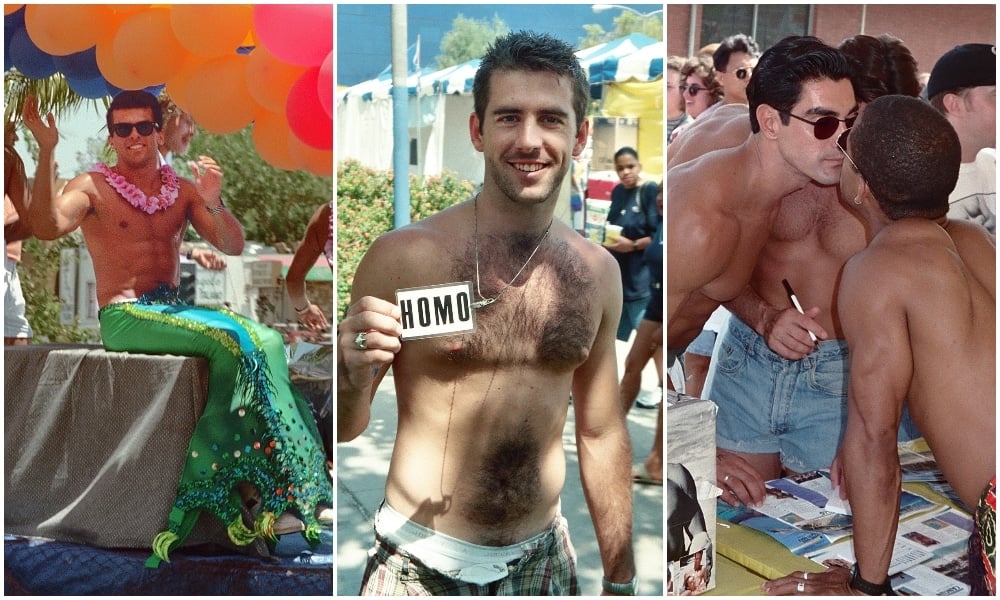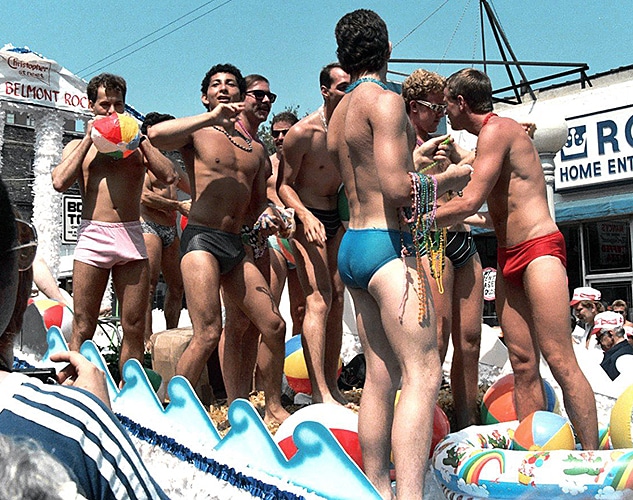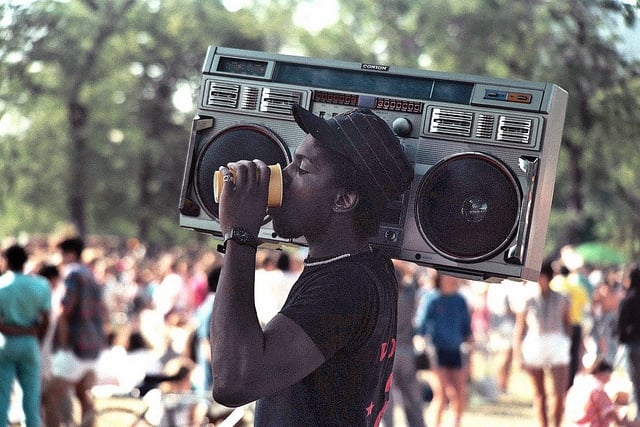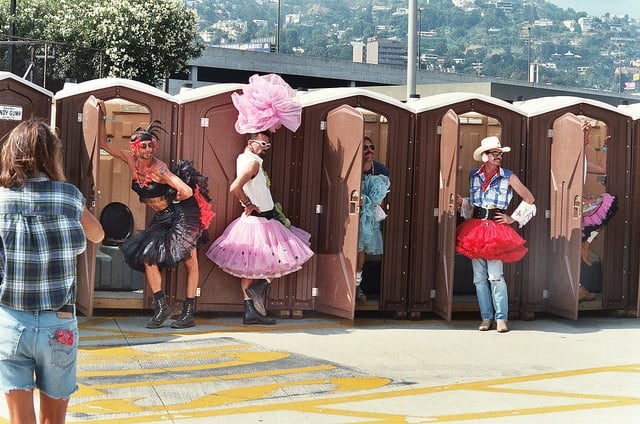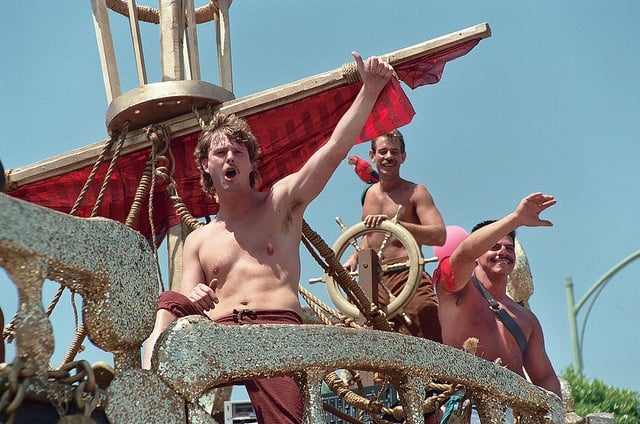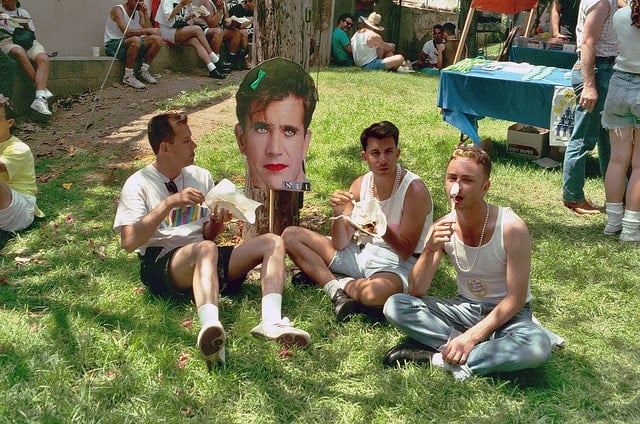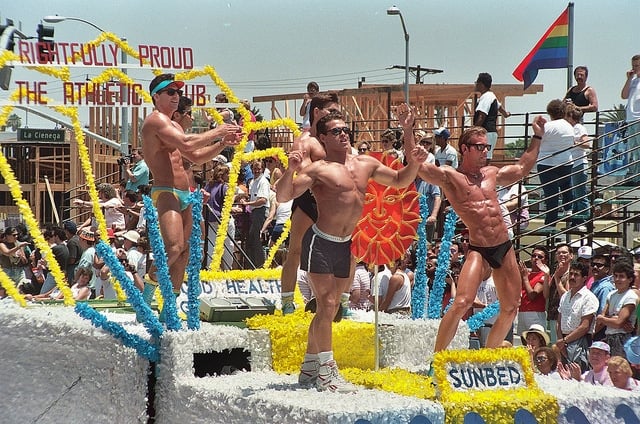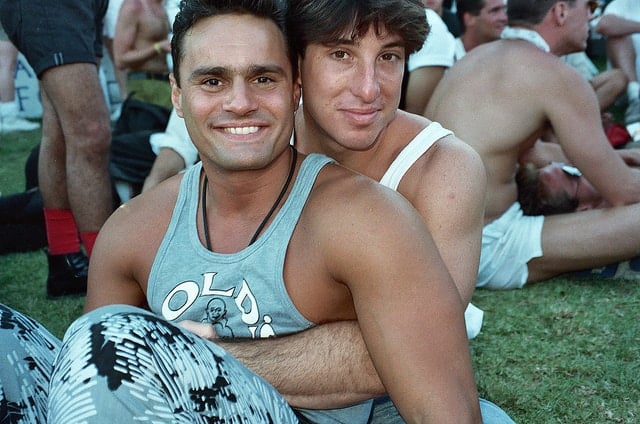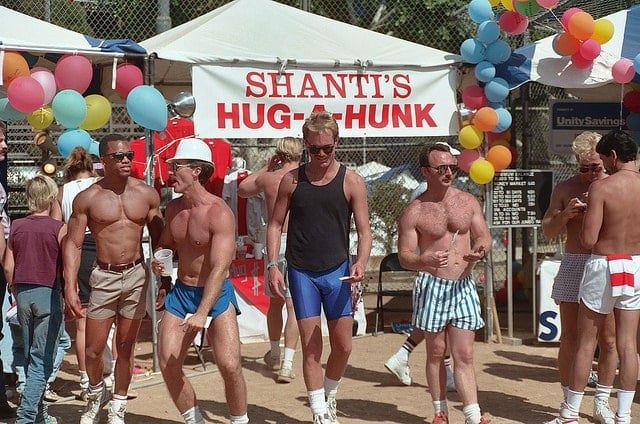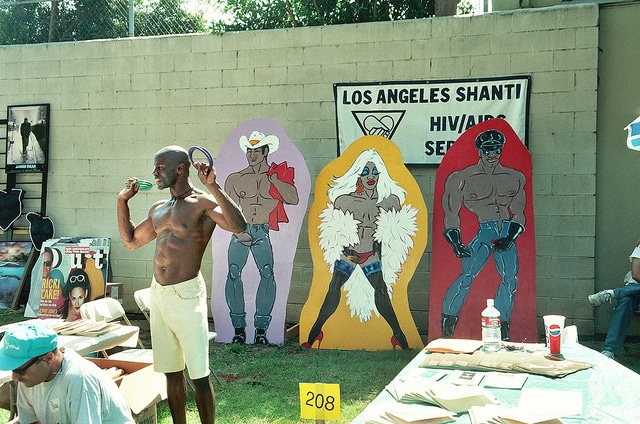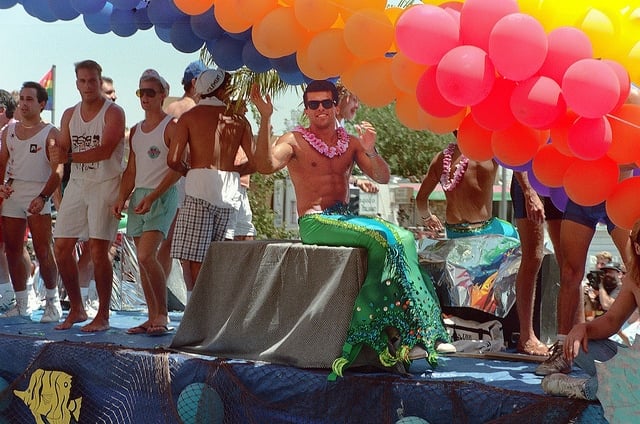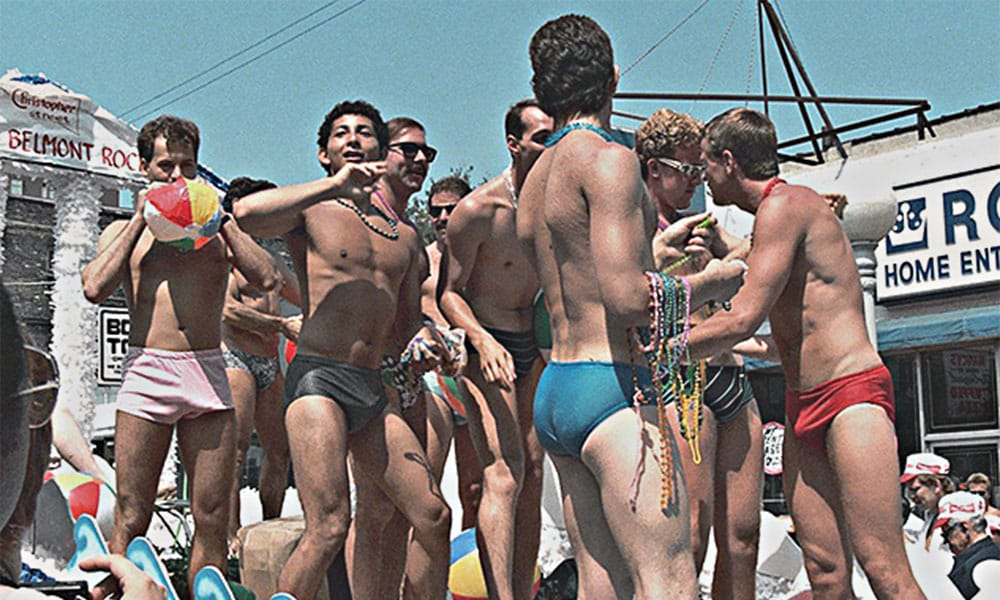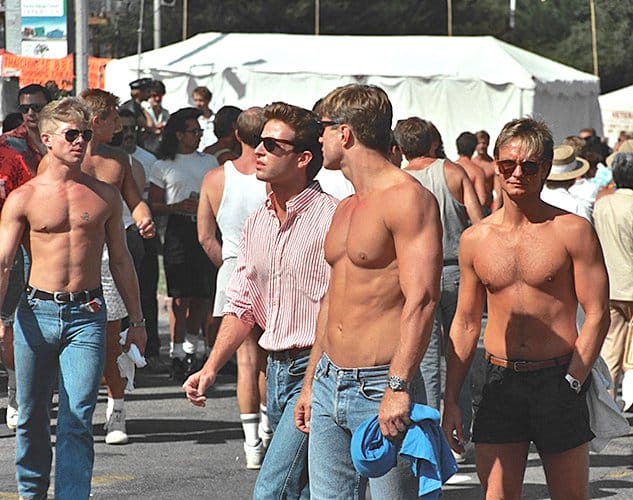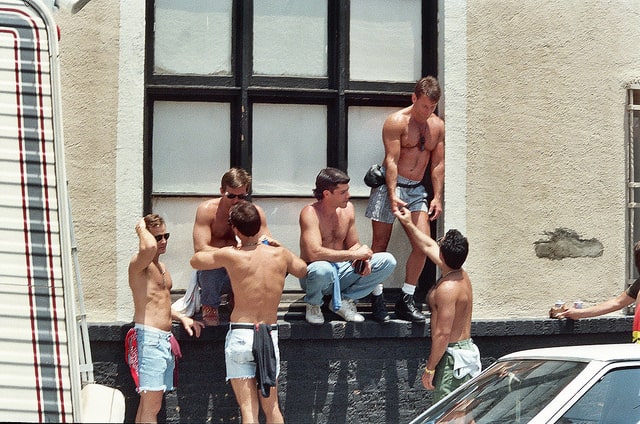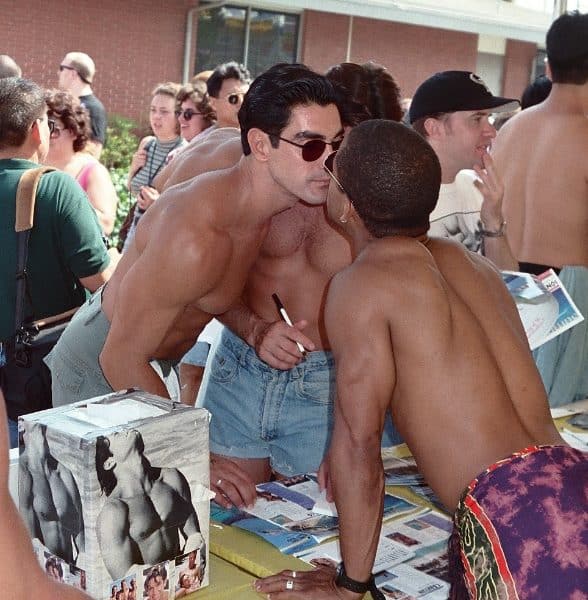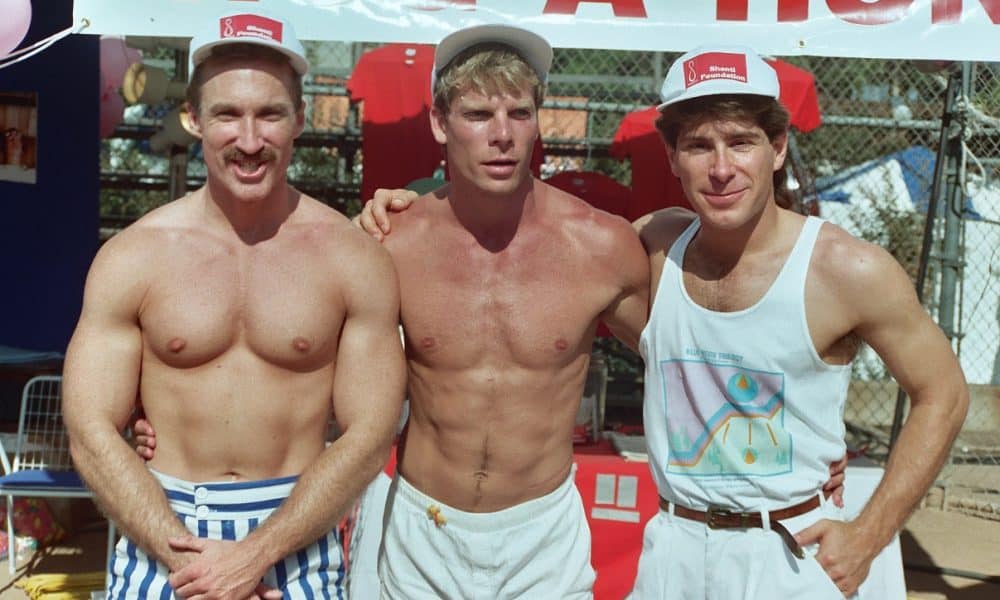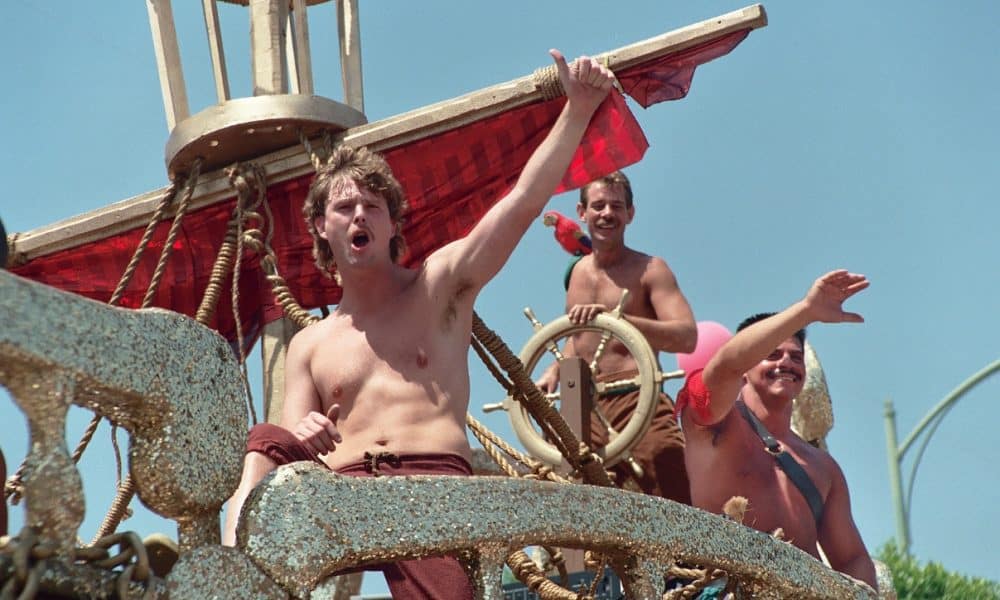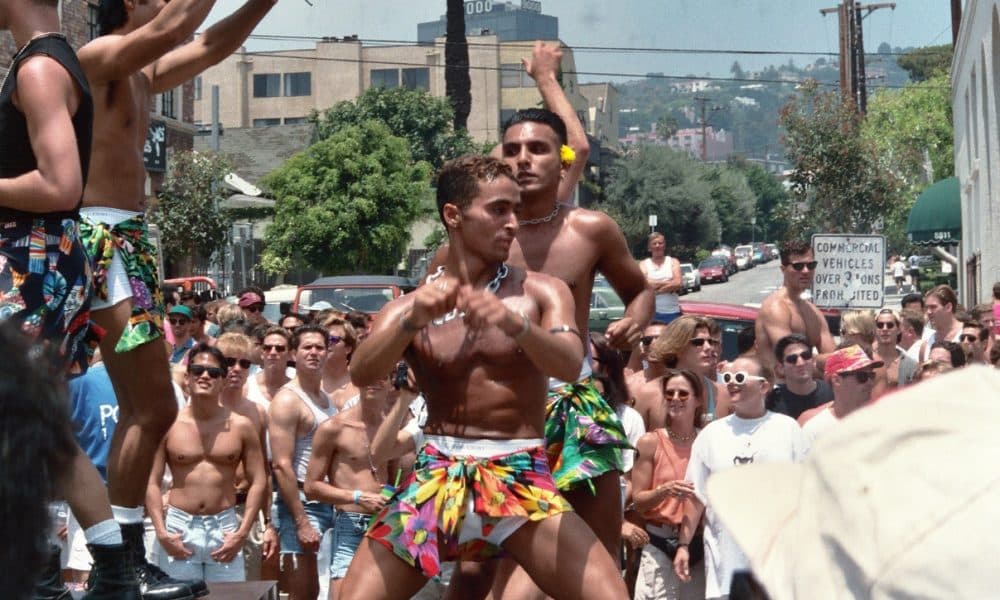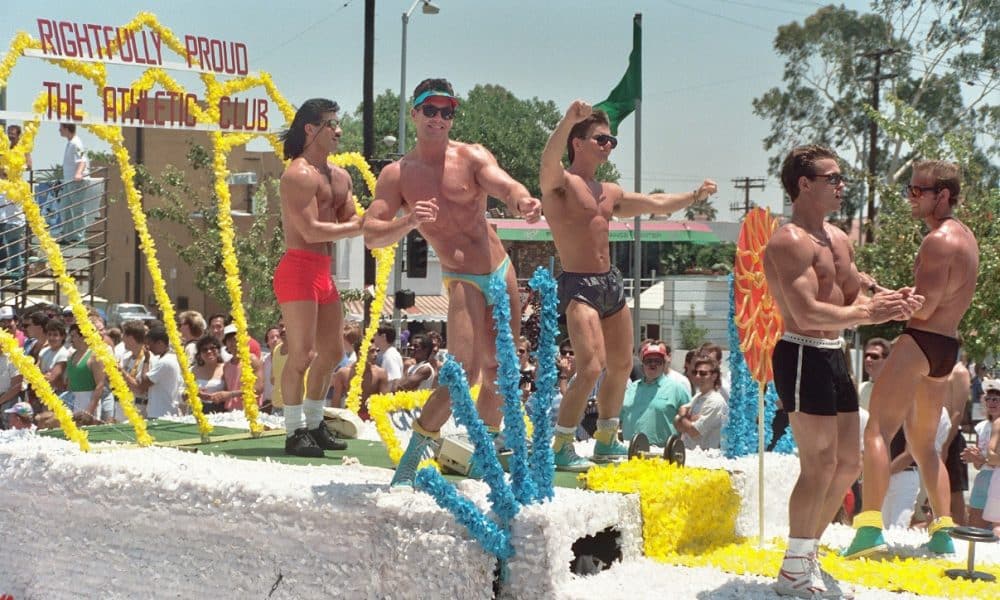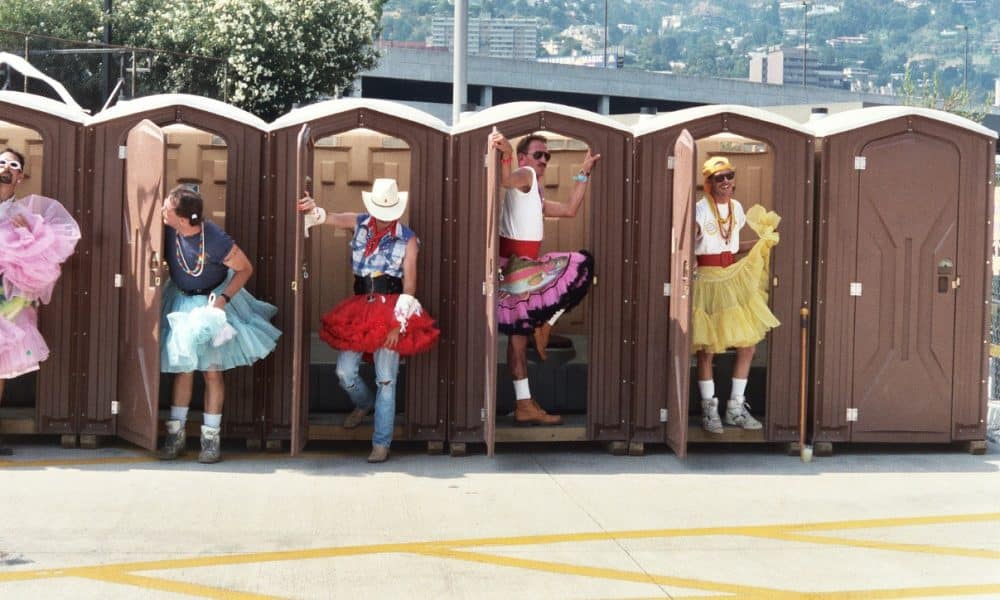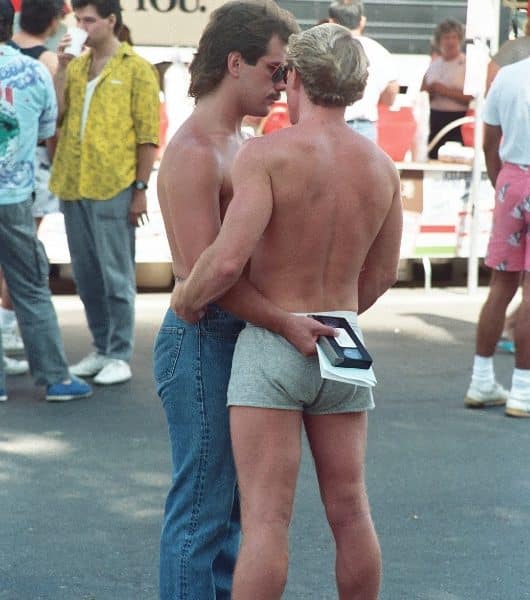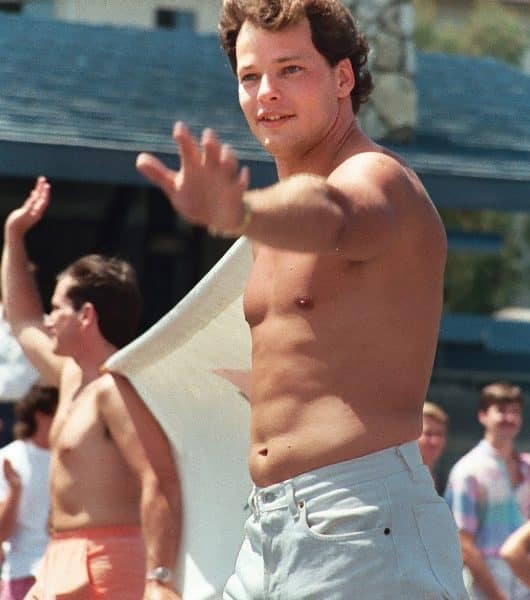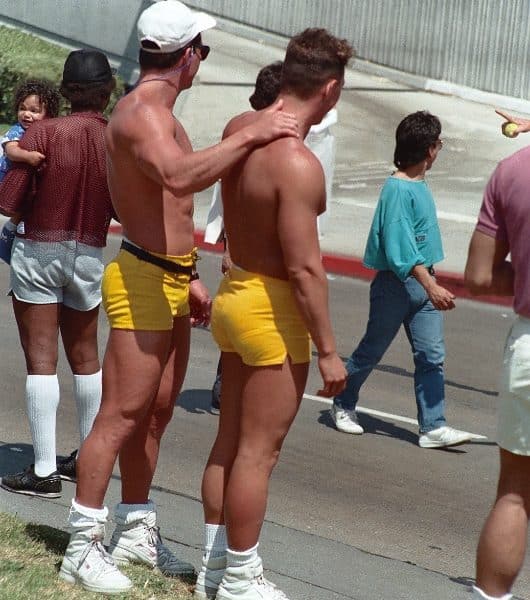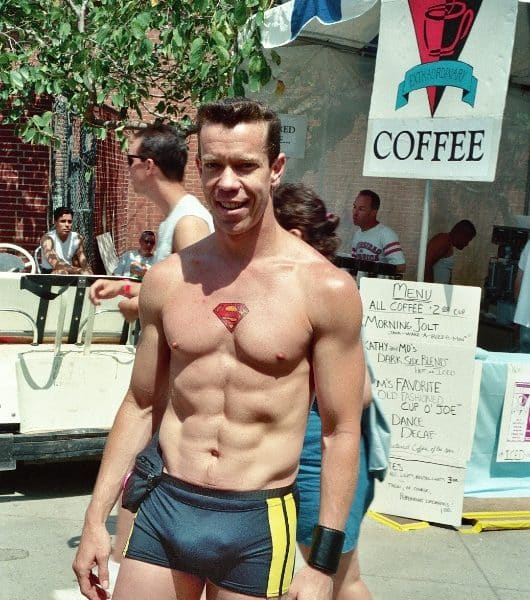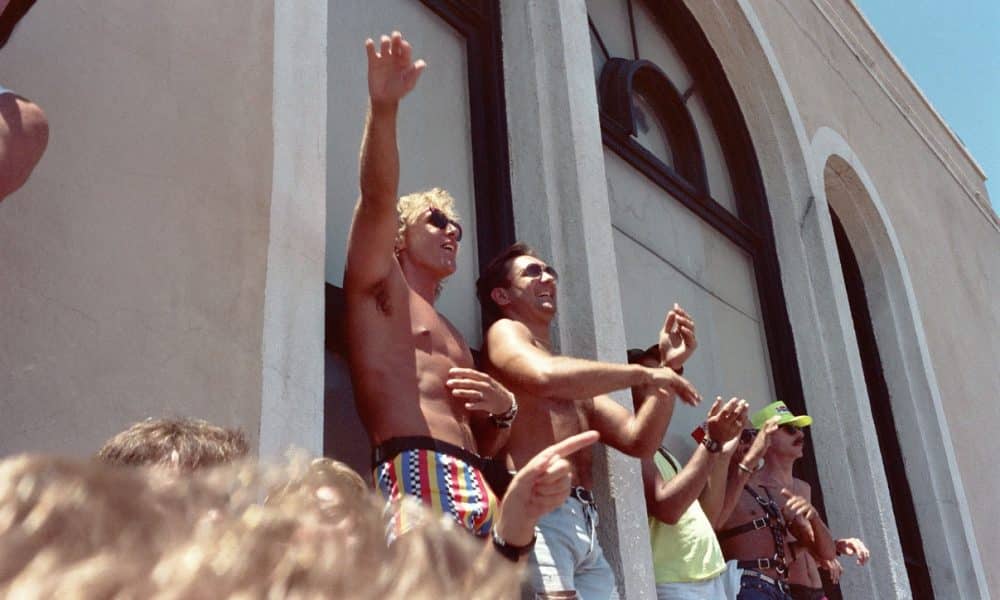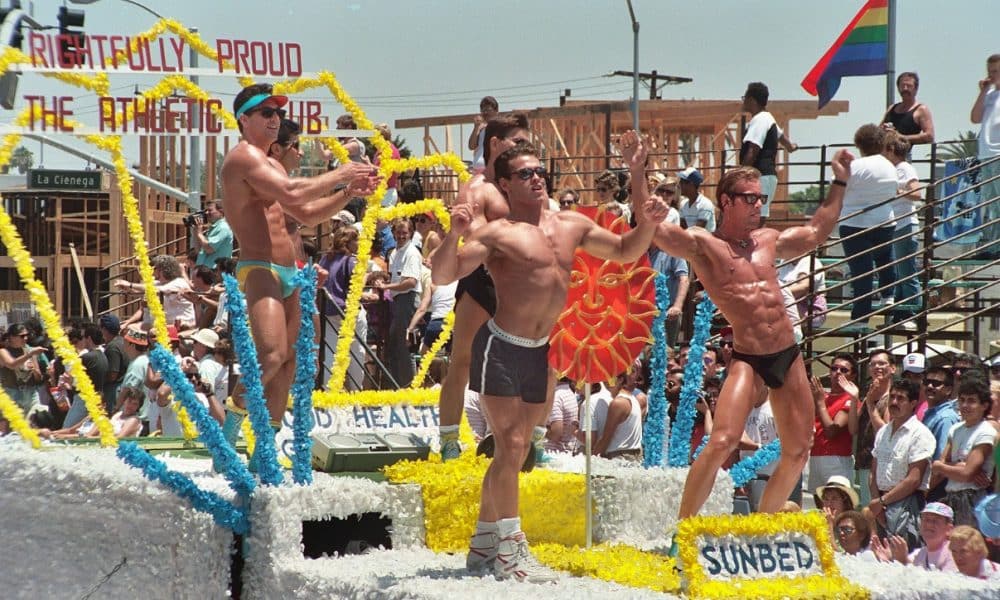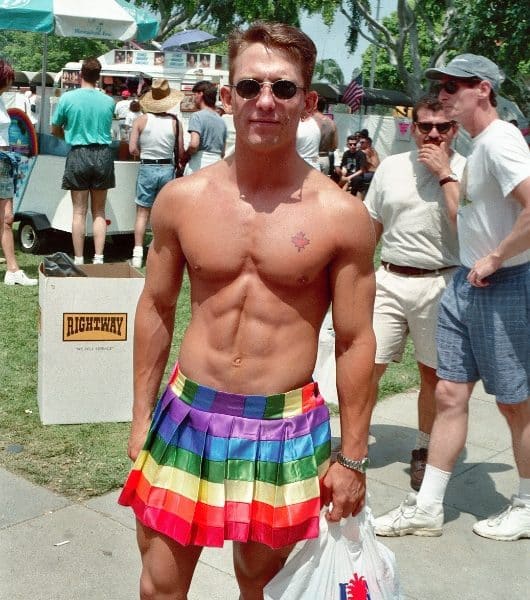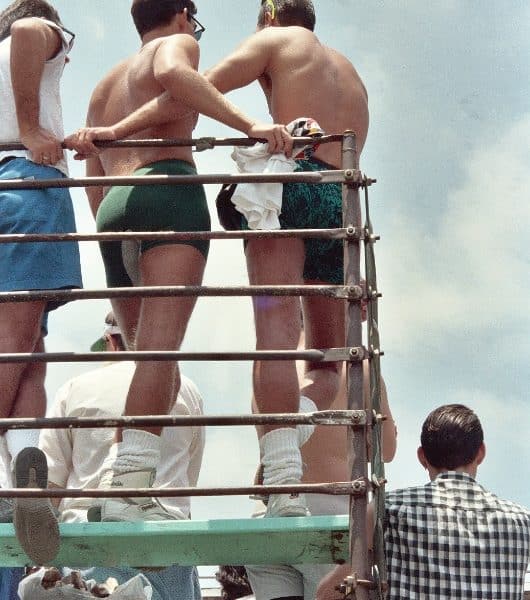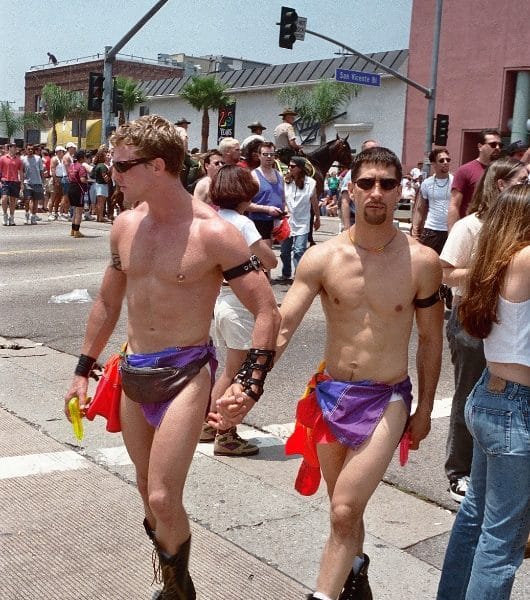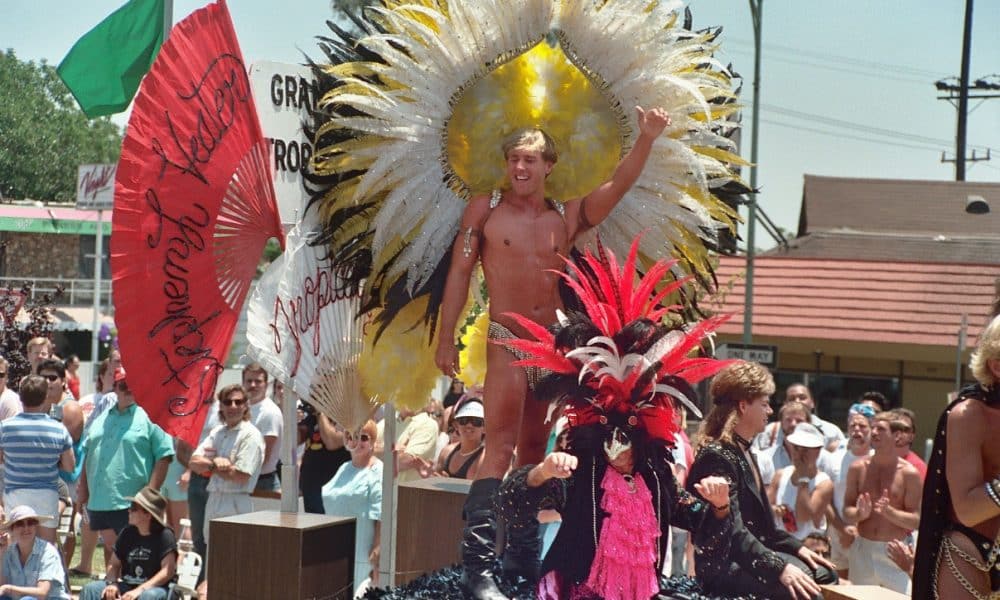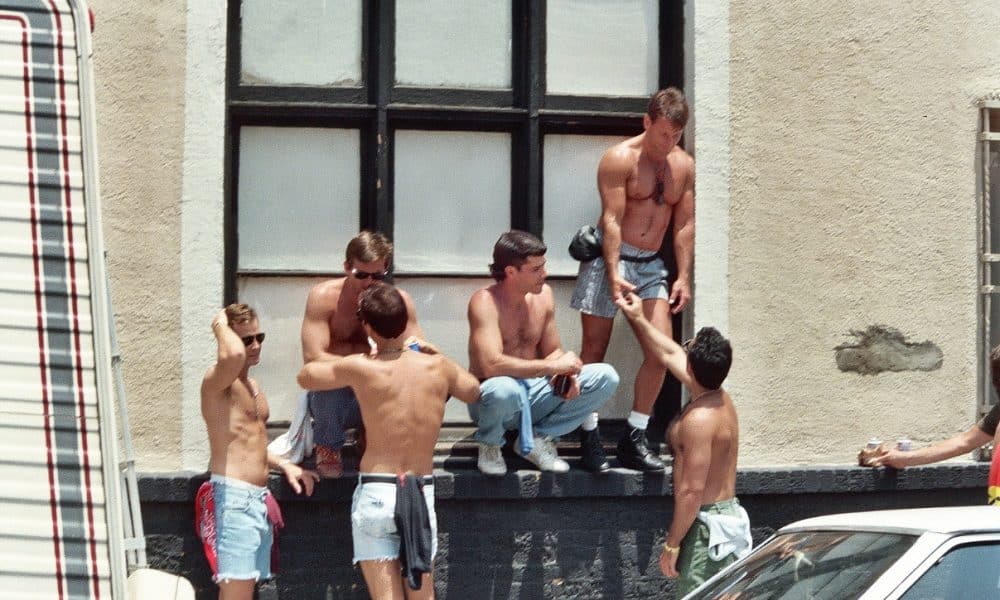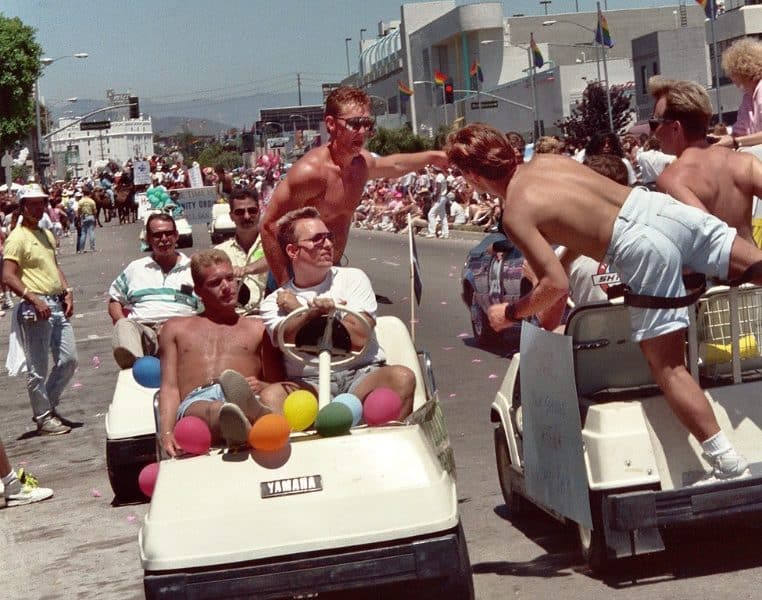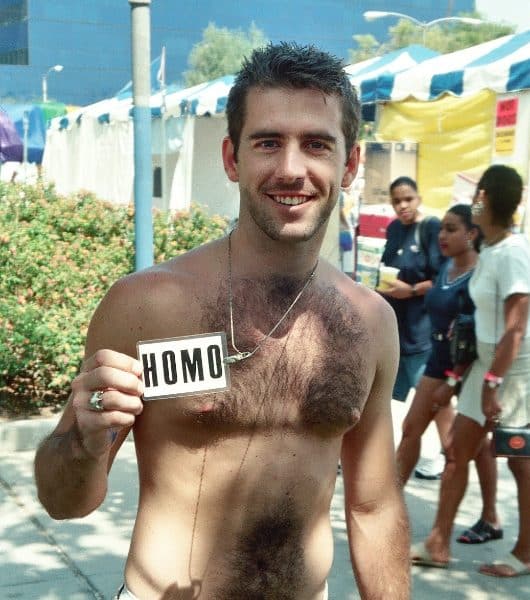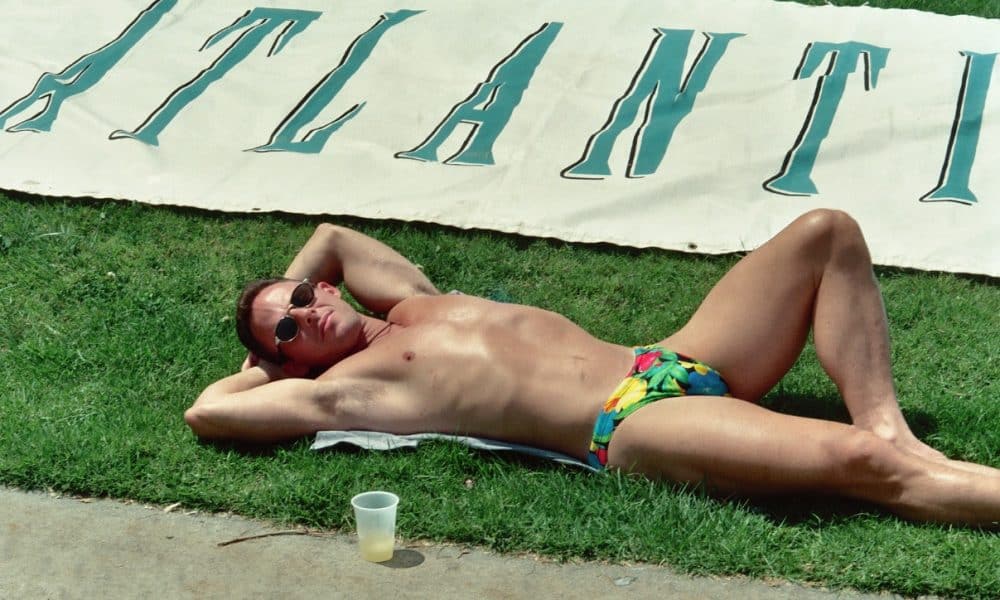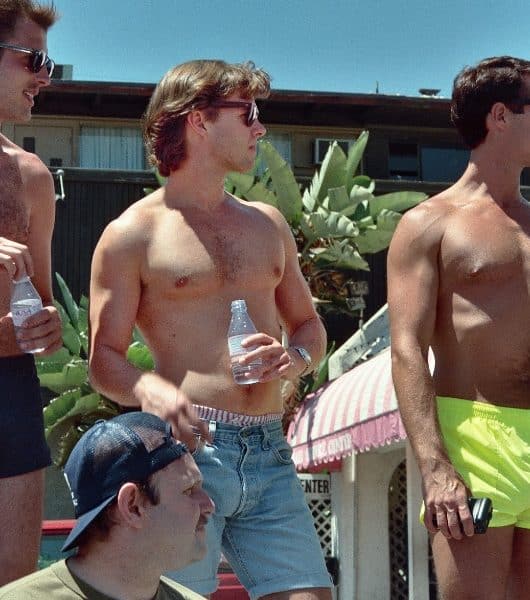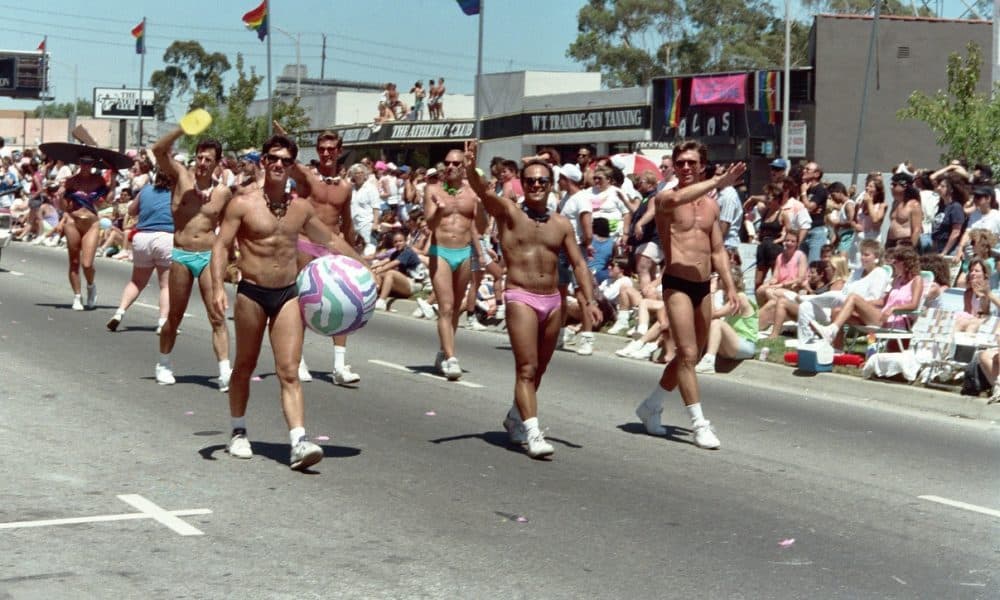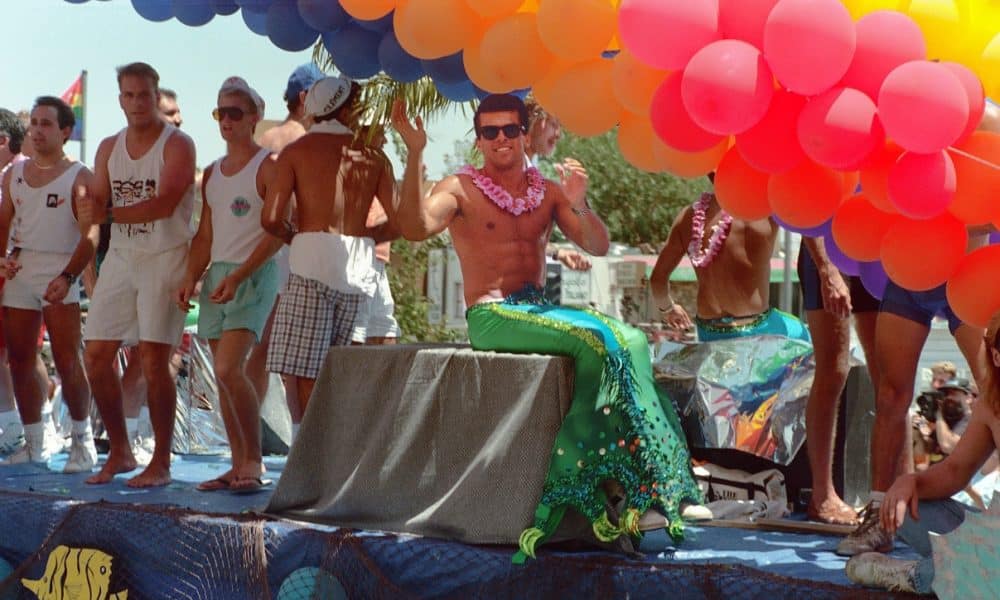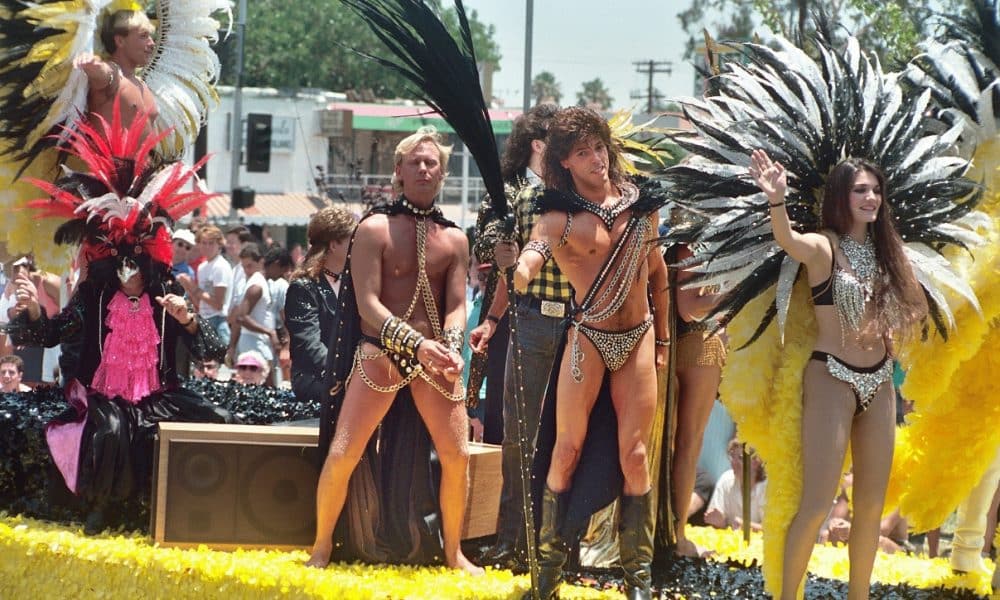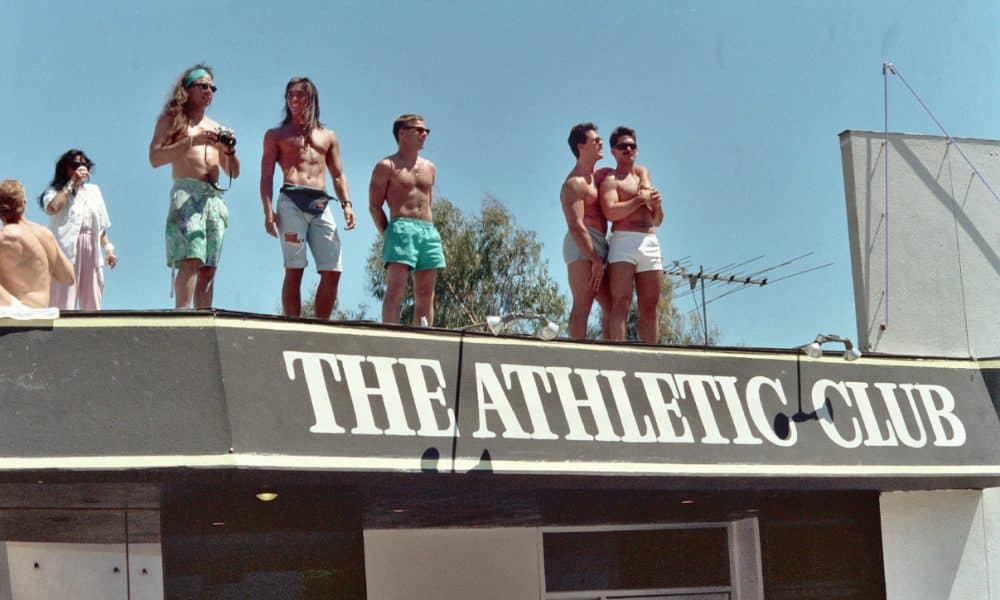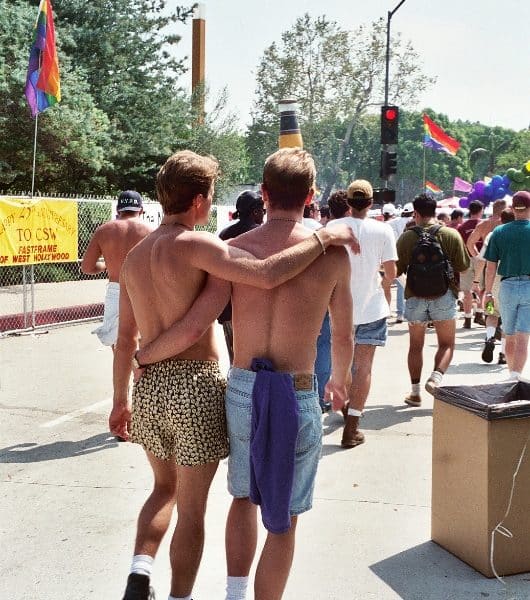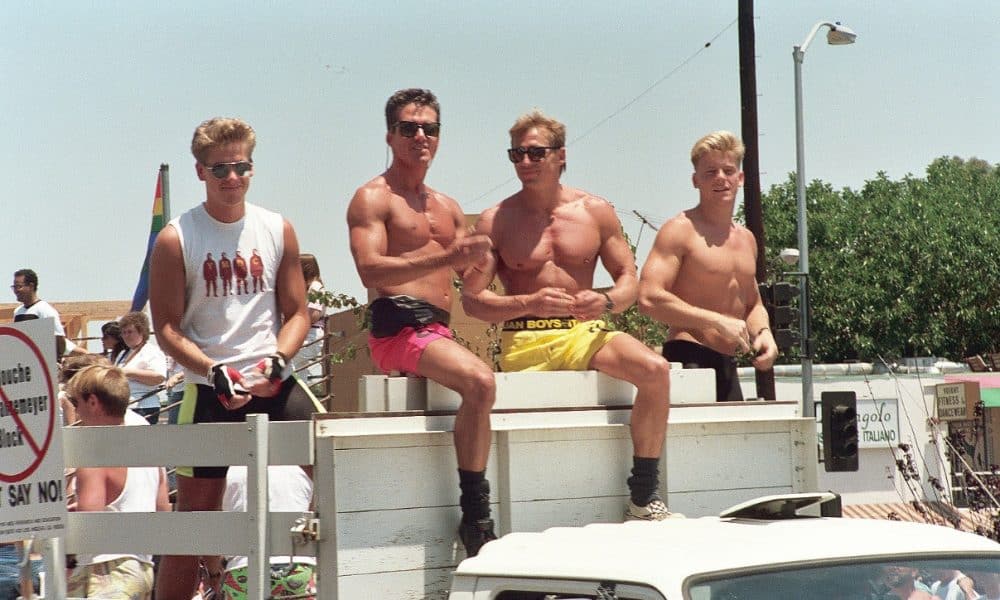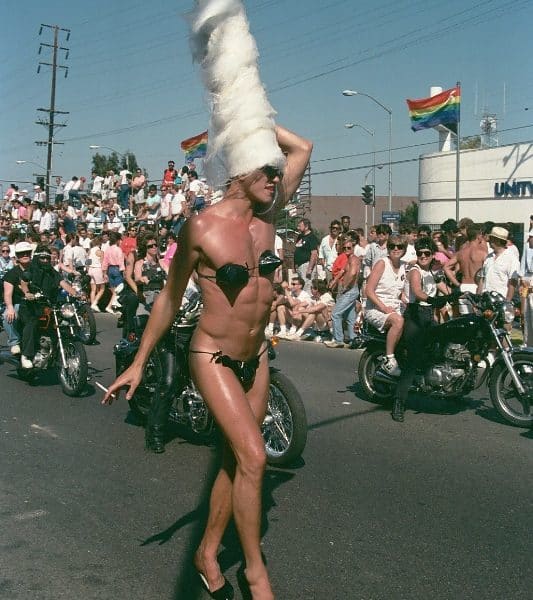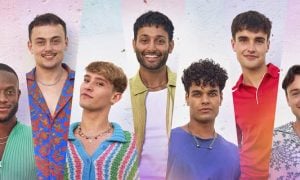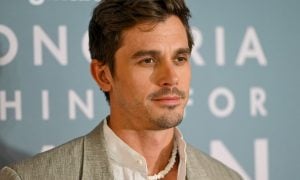Estimated reading time: 14 minutes
Historic pride photos festivals in West Hollywood, Los Angeles, years 1987 to 1995.
Pride in Los Angeles has transformed from a grassroots movement to a massive celebration with global impact. Alan Light, an amateur photographer from Iowa City, attended Los Angeles Pride festivals in the 1980s and ’90s, unintentionally creating an iconic photographic archive of LGBTQ+ history. From 1987 to 1995, Light captured raw and candid images that now serve as a window into the past, documenting a period of intense cultural and political change. His photos reveal not only the spirit of Pride in West Hollywood but also the evolution of LGBTQ+ visibility, resilience, and joy.
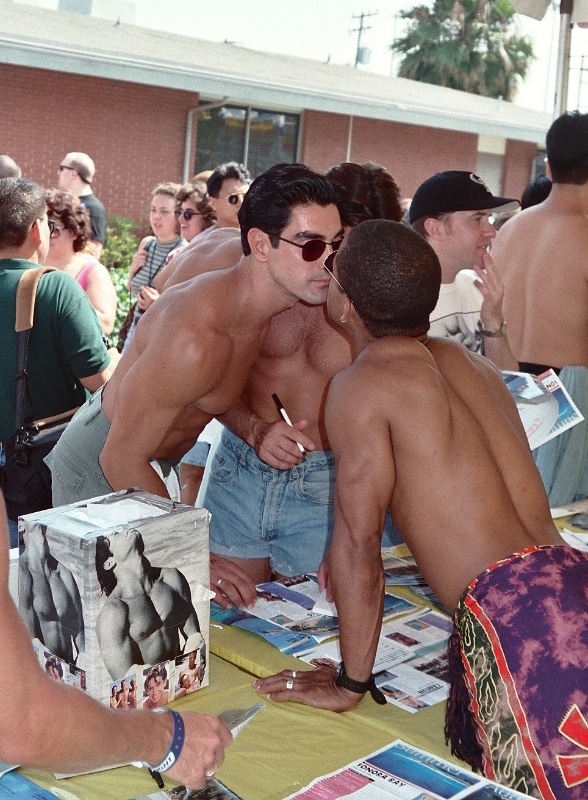
Alan Light’s Unplanned Legacy
Alan Light attended Pride festivals across major cities like Los Angeles, San Francisco, and Chicago, with no expectation that his images would later be seen as historic documentation. “It never occurred to me at the time that they would be looked at as history,” Light told Queerty. “I was just attracted to the rich photographic opportunities the events offered. I have always enjoyed photographing people, and my camera is attracted to the beautiful, mostly, and occasionally the bizarre.” For Light, Pride was a place of vibrant visual stories, a chance to capture faces full of joy, defiance, and community.
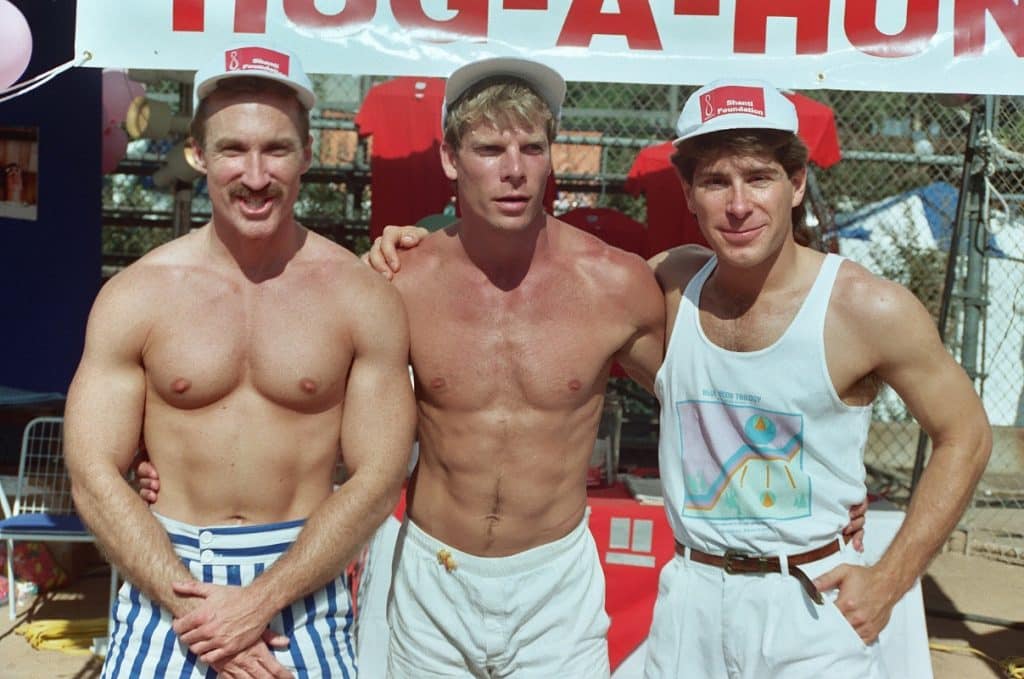
In the ‘80s, Pride events were comparatively modest, especially by today’s standards. “Pride seemed like a huge event then, but looking back, it is quaint compared to those of today,” Light reflected. These smaller gatherings, however, were no less powerful. They were spaces where people gathered to celebrate identity in the face of stigma and discrimination, providing a safe haven for those often forced into the margins of society.
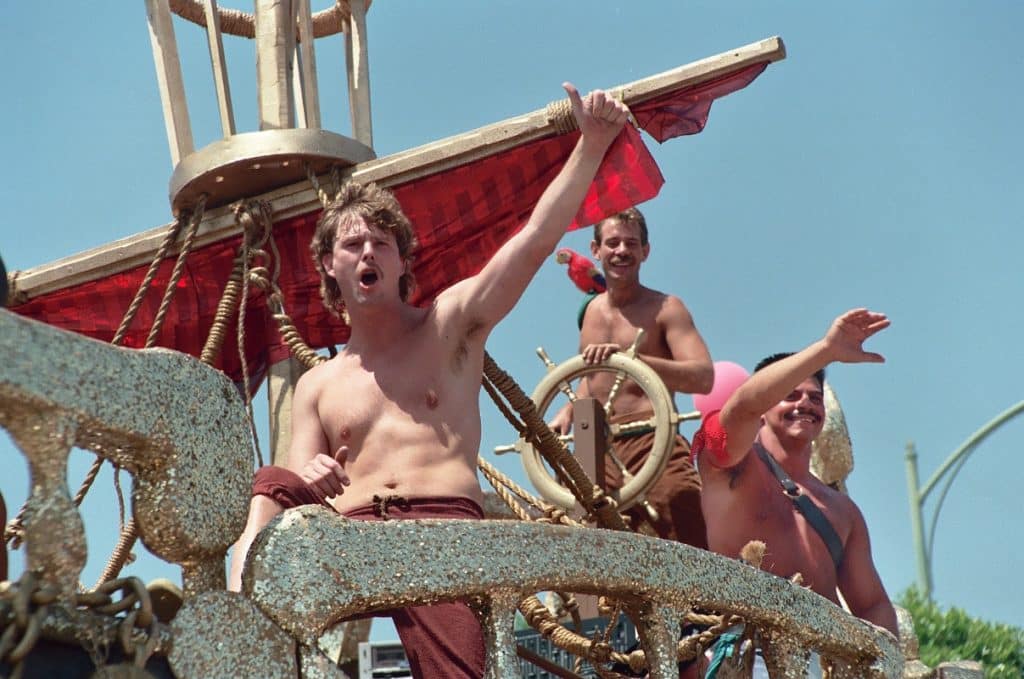
A Glimpse into Pride in 1980s Los Angeles
Alan Light’s photos capture moments that would seem almost unrecognizable today. Instead of the corporate sponsorships, massive stages, and celebrity endorsements we see now, Pride in the ’80s was primarily organized by local activists and volunteers. Attendees came as they were, celebrating authenticity over glamor. Light’s images document attendees sporting everything from vibrant rainbow attire to DIY costumes, mingling in the streets of West Hollywood with an infectious energy.
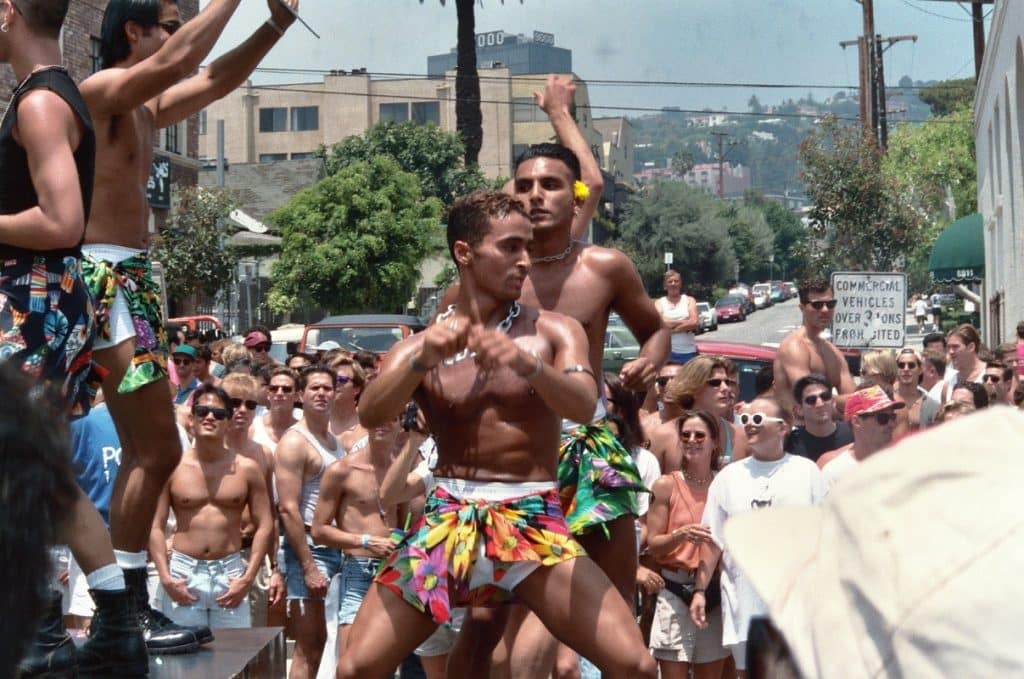
West Hollywood, already an LGBTQ+ hub, provided a natural gathering spot for Pride events in Los Angeles. The city became a sanctuary for the community, particularly during the height of the AIDS crisis, which swept through Los Angeles in the 1980s. Pride wasn’t just a celebration; it was also a rallying cry for equality and a space for mourning. Light’s photos capture people wearing shirts and carrying signs commemorating loved ones lost to AIDS, along with signs demanding government action and healthcare reform.
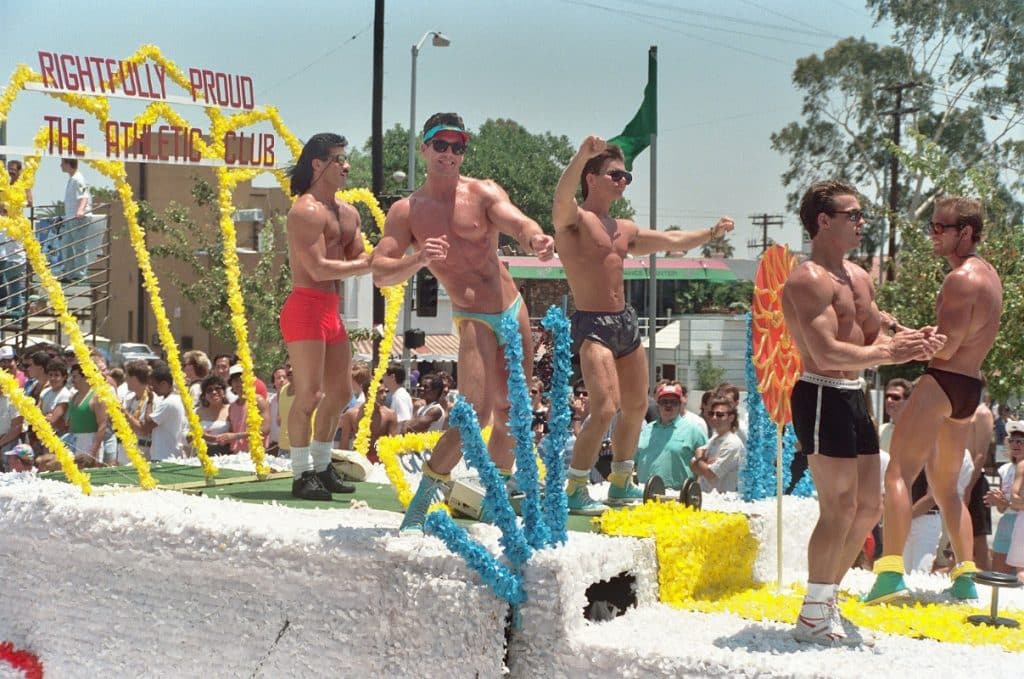
The History of Los Angeles Pride and West Hollywood’s Role
The first Pride parade in Los Angeles took place in 1970, just one year after the Stonewall Uprising. That event in New York inspired queer communities across the country to take to the streets. L.A.’s Pride parade was revolutionary; it was the first permitted gay Pride parade in the world. The early parades were held in Hollywood and faced heavy opposition, but activists and community members persisted, and the tradition of Pride in Los Angeles was born.
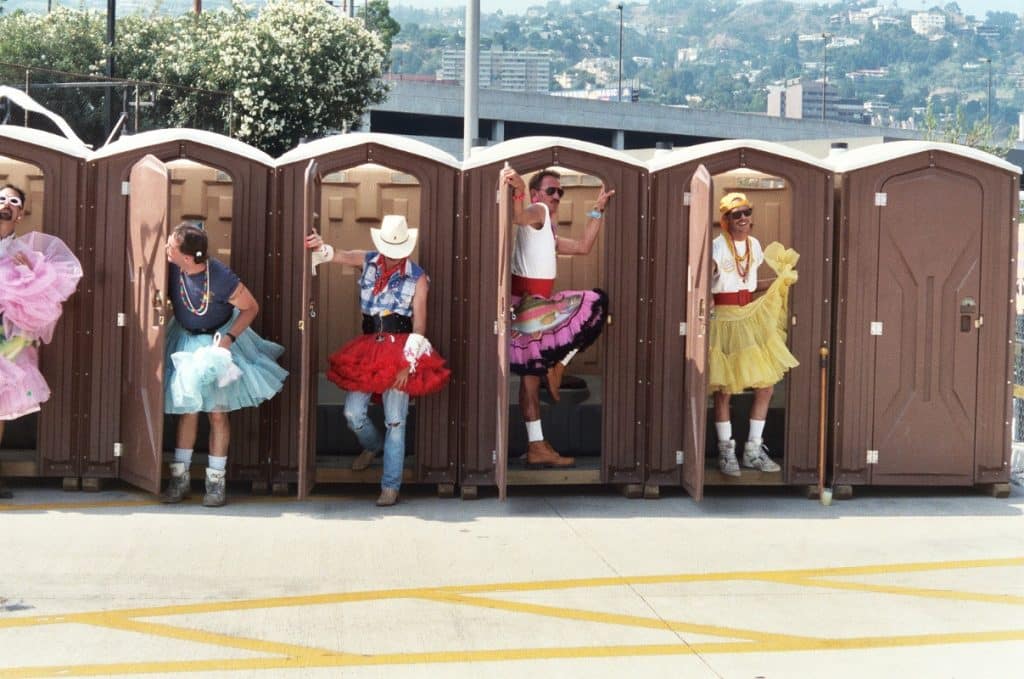
West Hollywood, incorporated as a city in 1984, quickly became a central location for LGBTQ+ activism and culture. Known as “WeHo” by locals, it offered a safe haven where the LGBTQ+ community could live openly. The city embraced its identity as a queer epicenter, hosting numerous LGBTQ+ events and resources. By the mid-1980s, West Hollywood took over as the primary location for L.A.’s Pride celebrations, providing the community with a supportive home base during a time of intense political and social challenges.
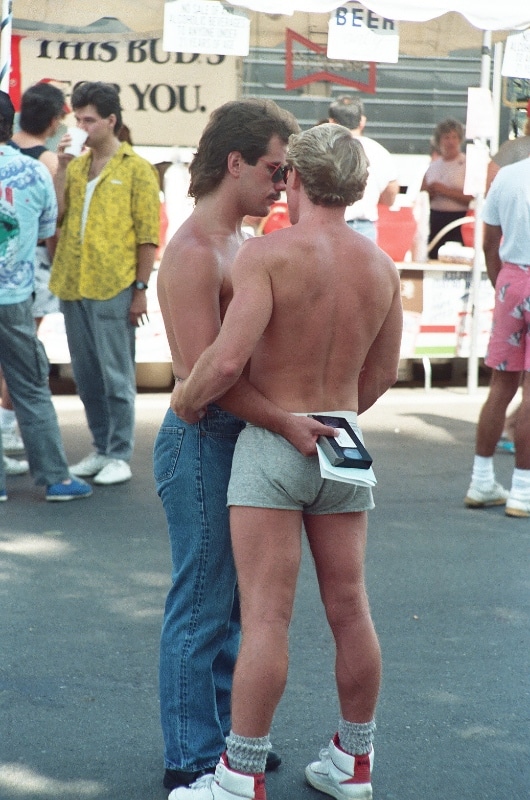
As the AIDS epidemic escalated in the 1980s, West Hollywood’s Pride celebrations became deeply intertwined with activism. Pride events in the city provided platforms for AIDS awareness, health information, and calls for action. Marchers, artists, and allies gathered to commemorate lives lost to the virus and to push back against the government’s indifference. The advocacy of West Hollywood’s LGBTQ+ community, captured through Light’s lens, reveals the dual role of Pride as both celebration and protest.
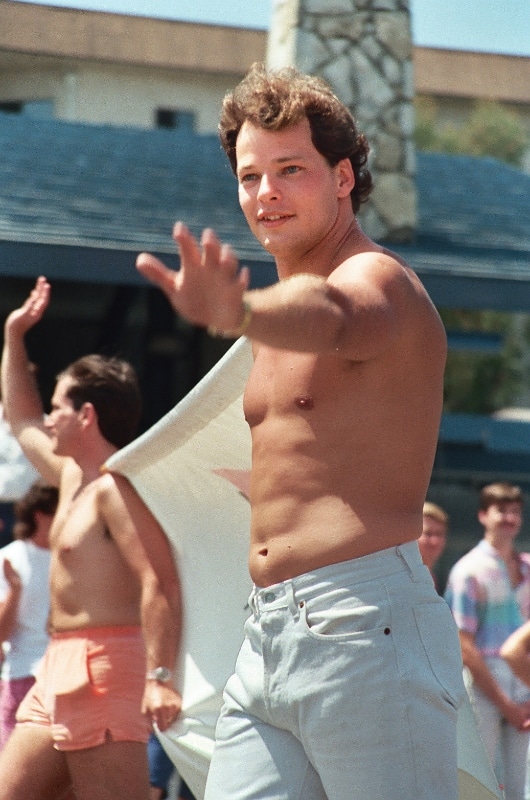
The Evolution of Pride: From Grassroots to Global
Comparing Alan Light’s photos to today’s Pride parades shows just how much the event has evolved. In the ’80s, Pride was community-focused, with local businesses, nonprofits, and grassroots organizations as the primary supporters. Light’s images show small floats, homemade banners, and the welcoming faces of local LGBTQ+ activists who organized on limited budgets. In contrast, modern Pride festivals in Los Angeles draw A-list celebrities, major corporate sponsors, and crowds in the hundreds of thousands. Brands now compete to display rainbow-themed merchandise and support LGBTQ+ inclusion, a shift that reflects both progress and the commercialization of queer identity.
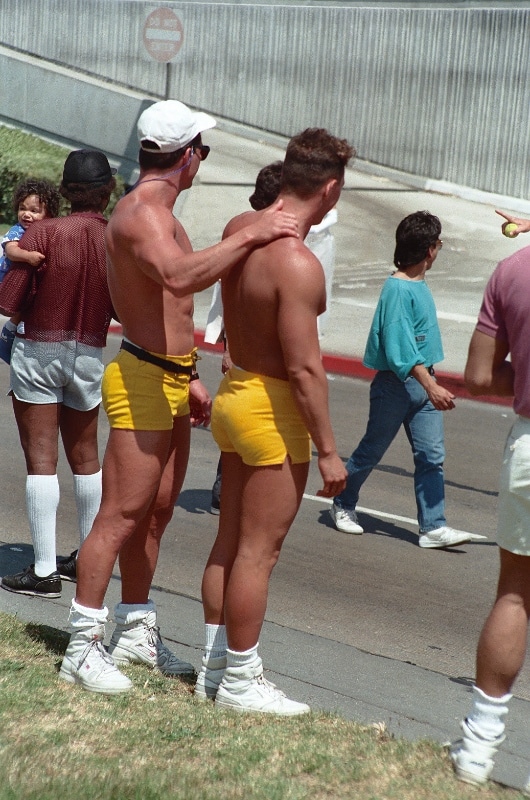
While some may view this commercialization skeptically, the shift highlights the increasing acceptance and visibility of LGBTQ+ people in mainstream culture. However, Light’s photos serve as a reminder of the origins of Pride, when the event was less about brand partnerships and more about creating a safe, celebratory space for a community under fire.
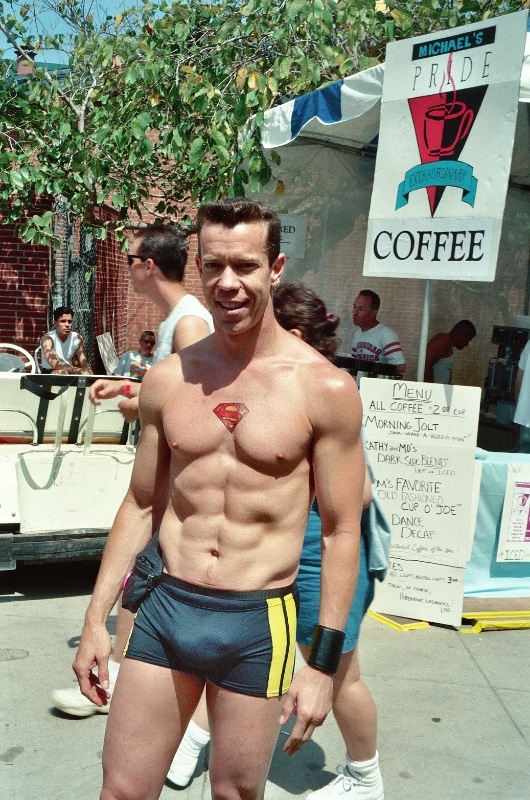
Pride Through Alan Light’s Lens: A Look Back
Light’s collection of Pride photos spans nearly a decade and covers a wide range of emotions and experiences. His photos reveal moments of pure joy—laughter, hugs, and dancing—and quieter moments of reflection, captured in faces remembering loved ones or advocating for change. Many images highlight the iconic looks of ’80s fashion, from neon colors to leather jackets, reflecting a time of unique style in queer culture. These images aren’t just snapshots; they’re glimpses into lives lived boldly in a time when LGBTQ+ rights were far from guaranteed.
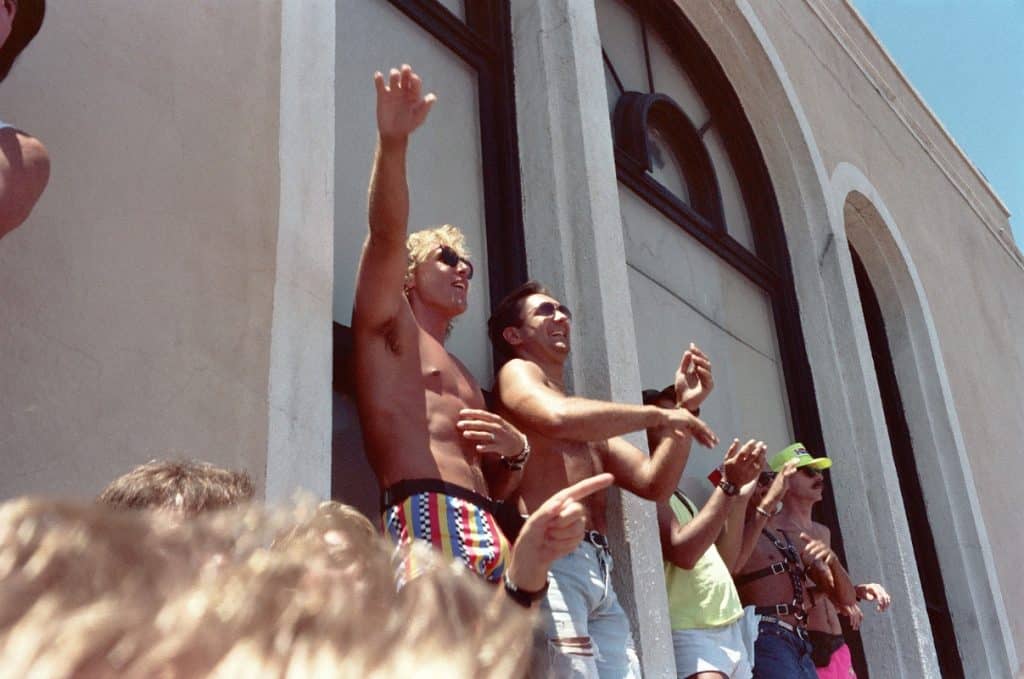
Some of Light’s images capture now-iconic figures and symbols within the LGBTQ+ movement. There are protest signs demanding action on AIDS, hand-painted banners proclaiming “Silence = Death,” and shirts honoring those lost. These images immortalize a powerful era of activism, reminding us that Pride was, and remains, deeply rooted in the fight for equality and justice.
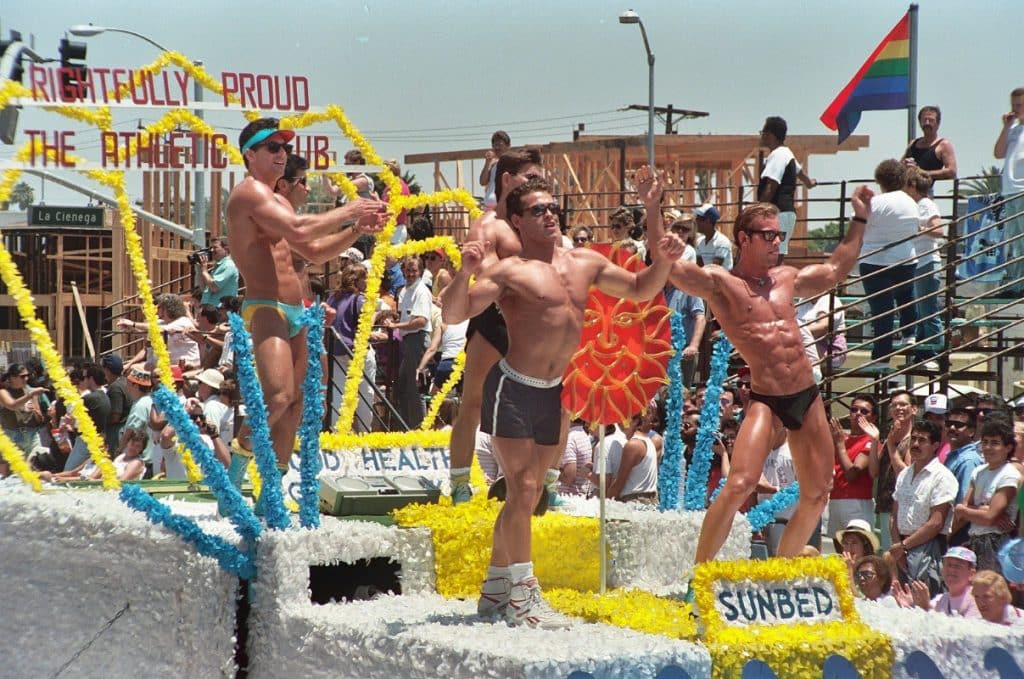
Light’s images also reflect how the LGBTQ+ community created spaces that allowed for individuality and collective belonging. People who attended Pride could express themselves in ways they might not have been able to in their daily lives, wearing what they wanted, loving who they wanted, and, perhaps for the first time, feeling truly seen.
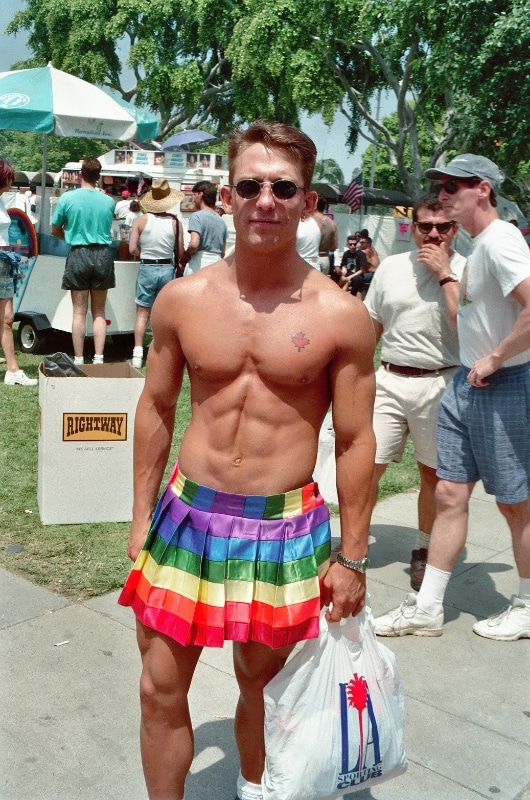
Why These Historic Pride Photos Matter Today
In today’s world, where LGBTQ+ rights are increasingly visible, Alan Light’s photos offer a powerful reminder of the roots of Pride. The images show the bravery of the LGBTQ+ community in an era when just being themselves was an act of courage. His photos document a time when Pride was built on community support and resilience, as attendees came together to demand acceptance and celebrate one another.
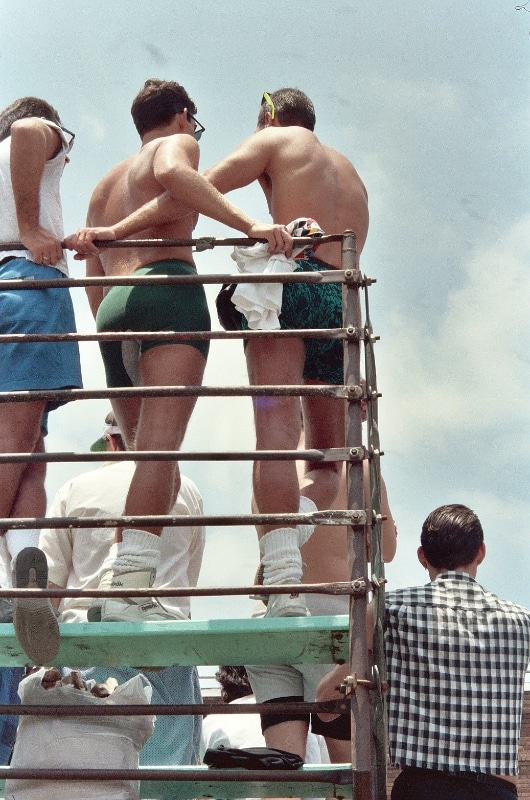
The faces and moments in these images speak volumes about the fight for equality and the progress made since then. They remind us of a time when Pride was not only a celebration but a protest—a reminder that today’s rights were hard-won. By sharing these images, Light unknowingly provided future generations with a valuable visual history of Pride’s evolution, especially in cities like Los Angeles where the movement played such an influential role.
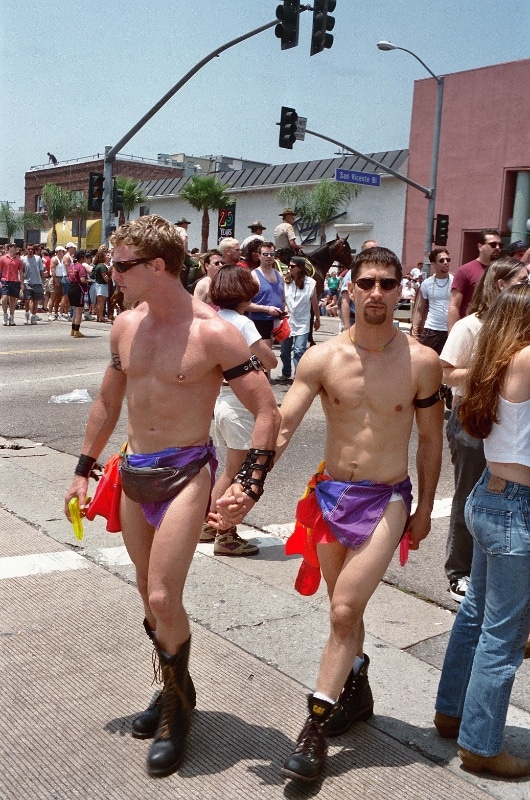
Final Thoughts: A Timeless Archive of LGBTQ+ Resilience
Alan Light’s Pride photos from the 1980s capture the essence of a community in transformation. They show the joy, love, and strength that characterized Pride festivals in Los Angeles, especially in West Hollywood, during a challenging era. Today, his photos are treasured not only for their artistic value but for their historical significance, offering a glimpse into a past that paved the way for the present. These images continue to inspire and educate, reminding us of the resilience, bravery, and beauty of the LGBTQ+ community in its fight for visibility and acceptance.
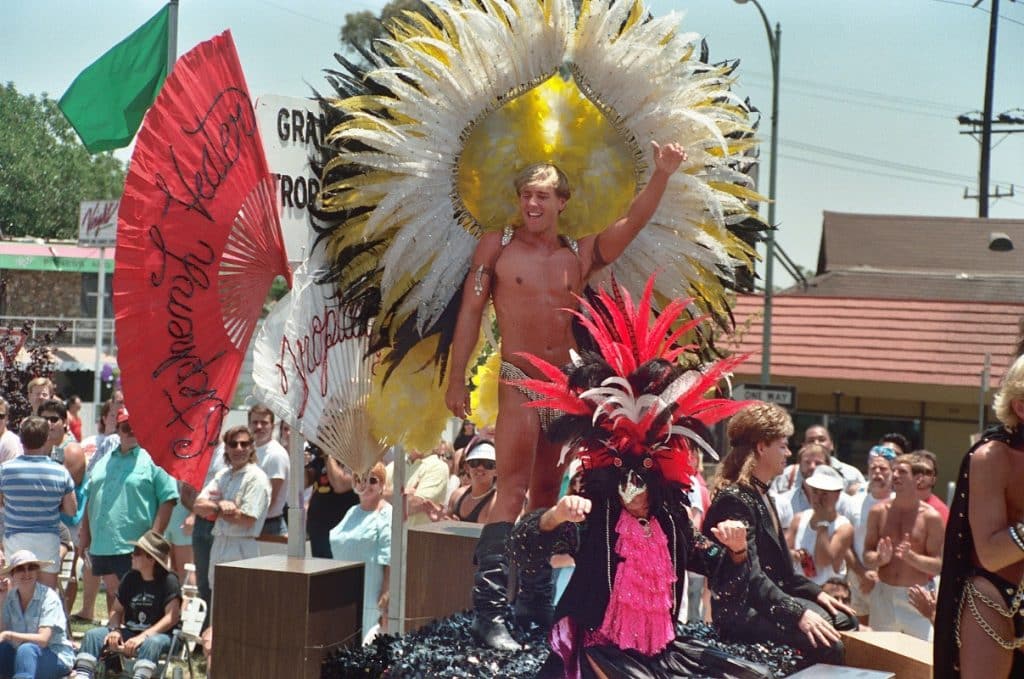
If you want to experience Pride through a different lens, take a journey back in time with Alan Light’s extraordinary images from Los Angeles’ historic Pride festivals.
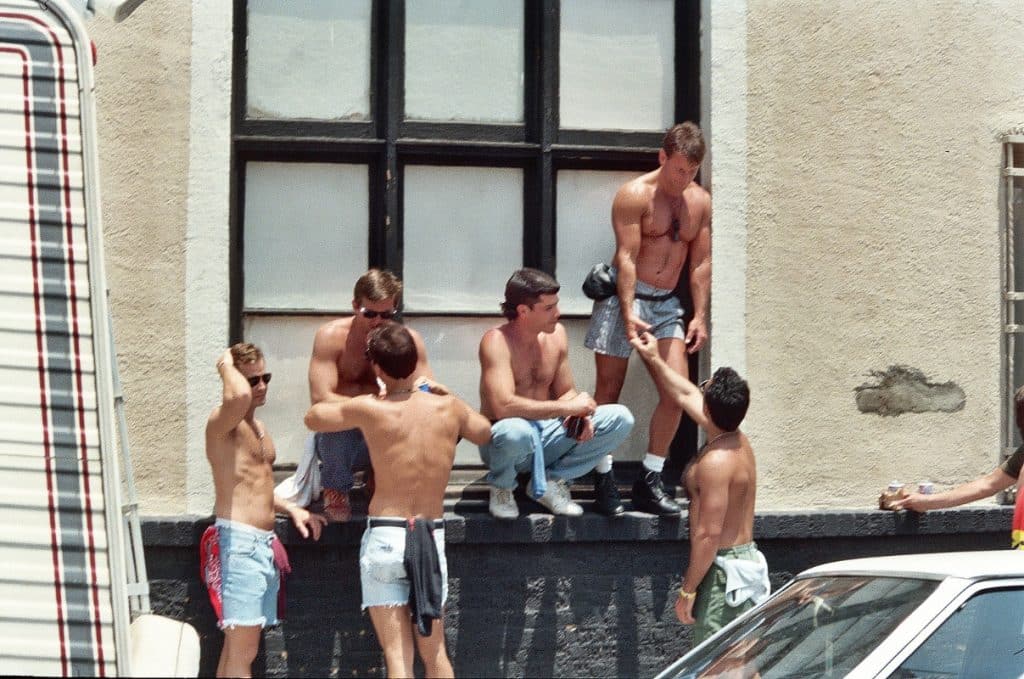
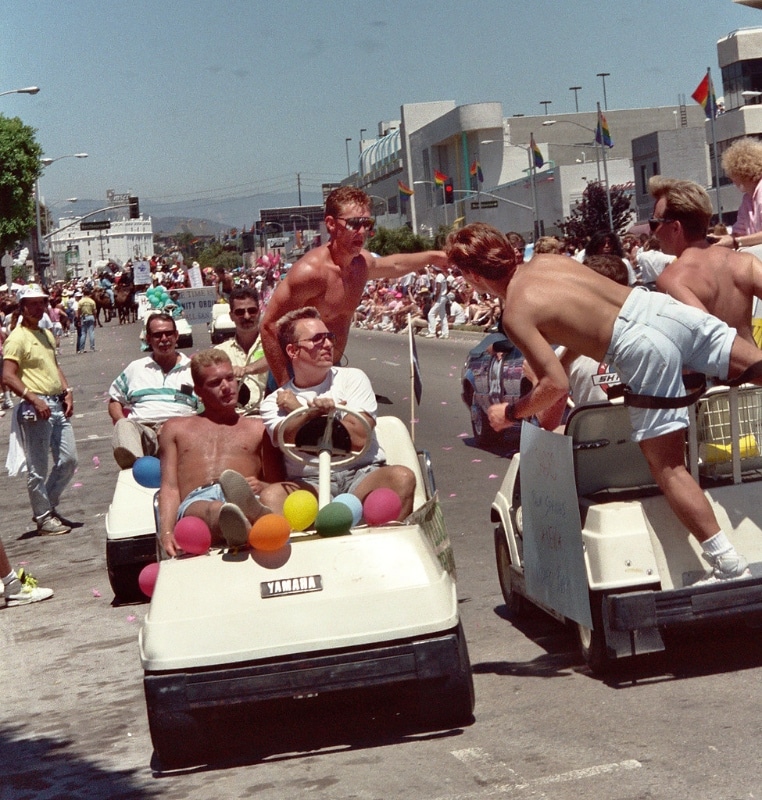
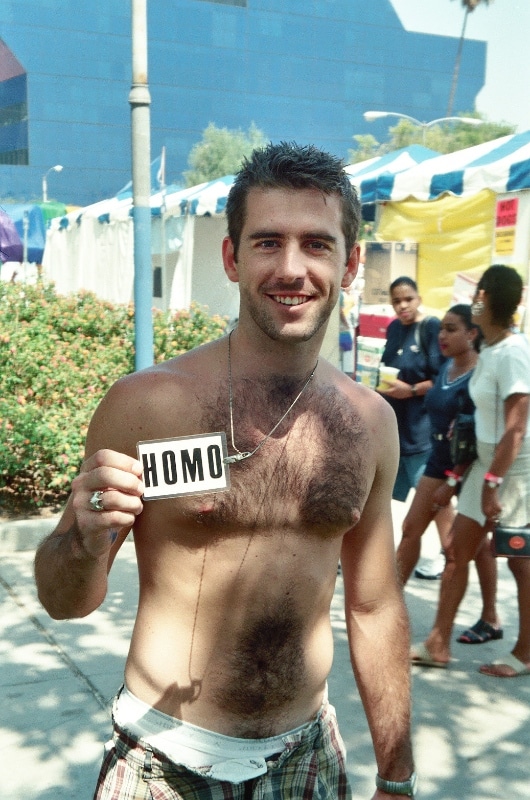
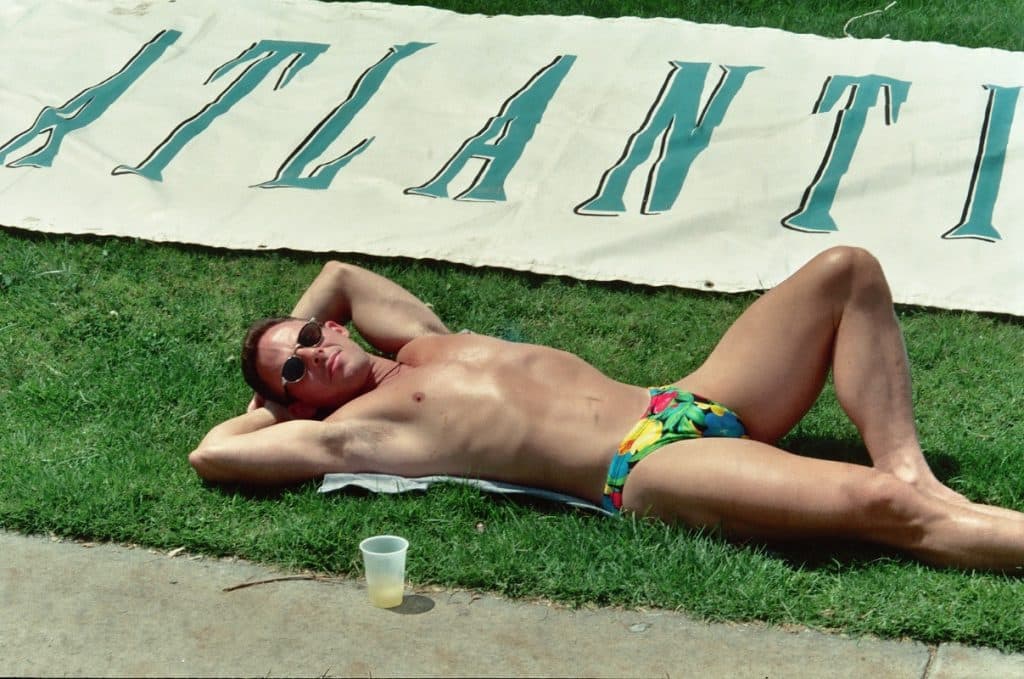
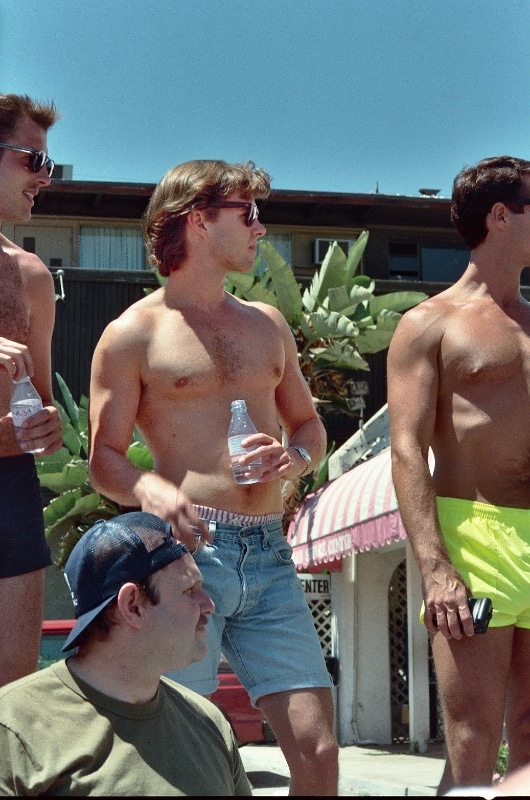
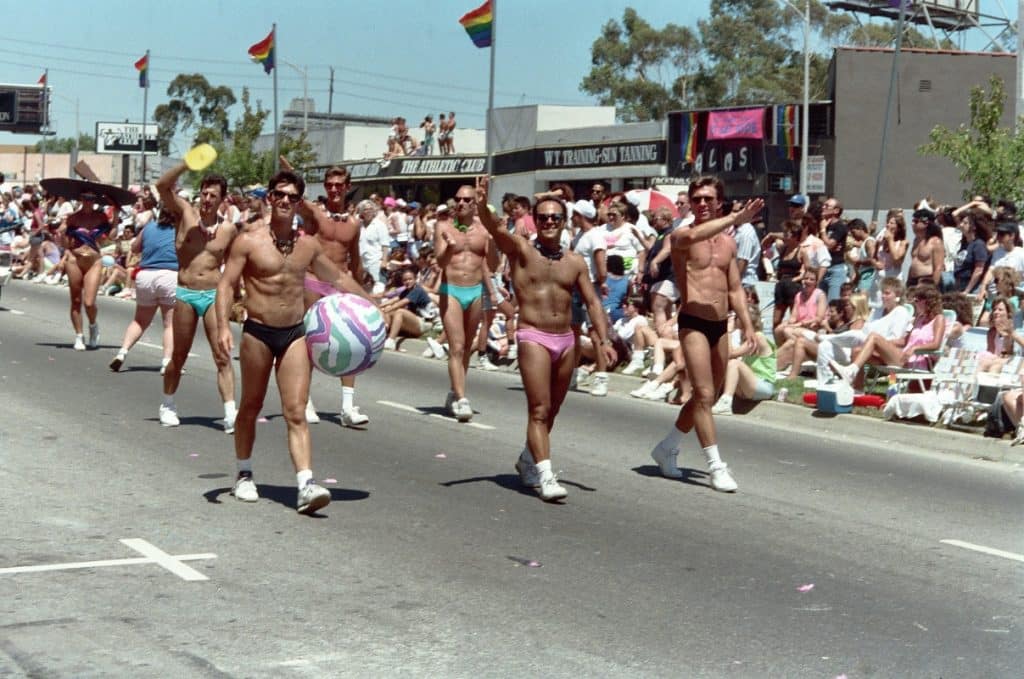
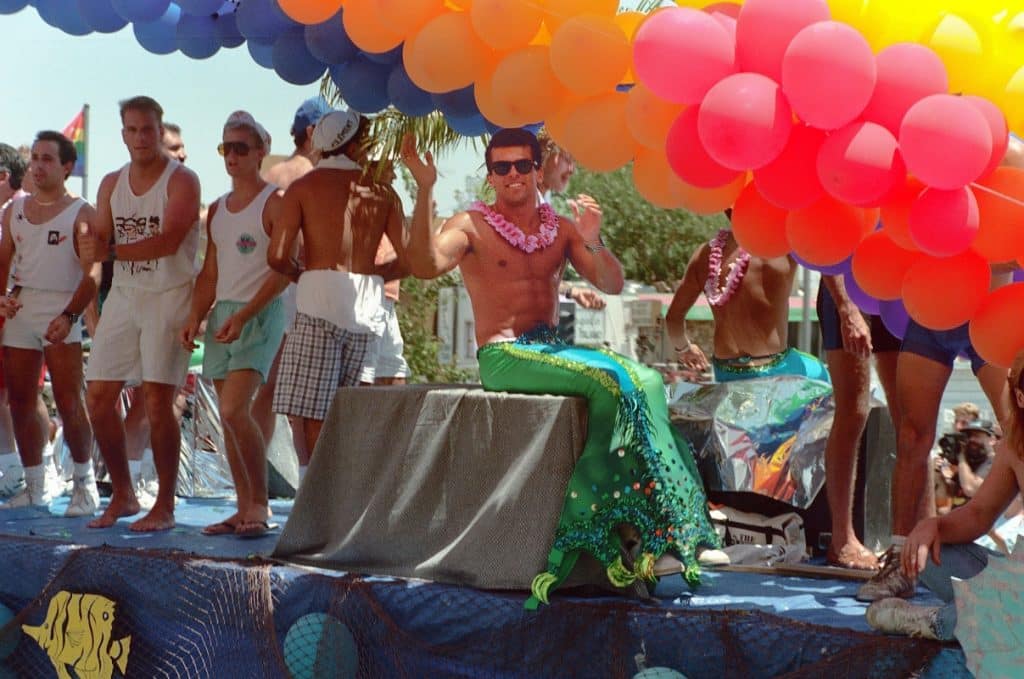
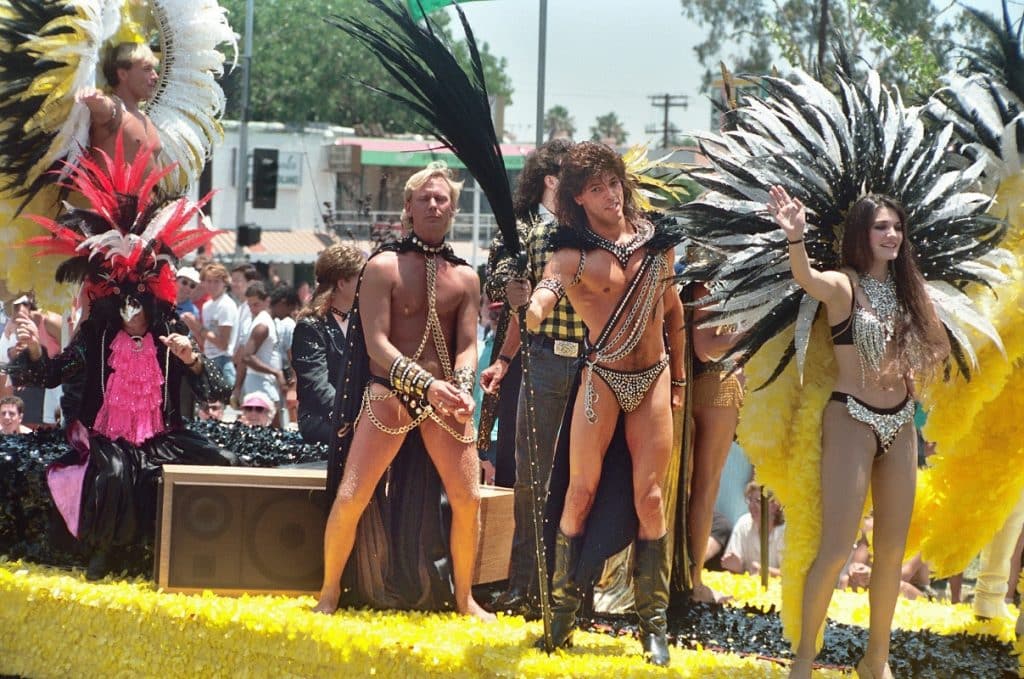
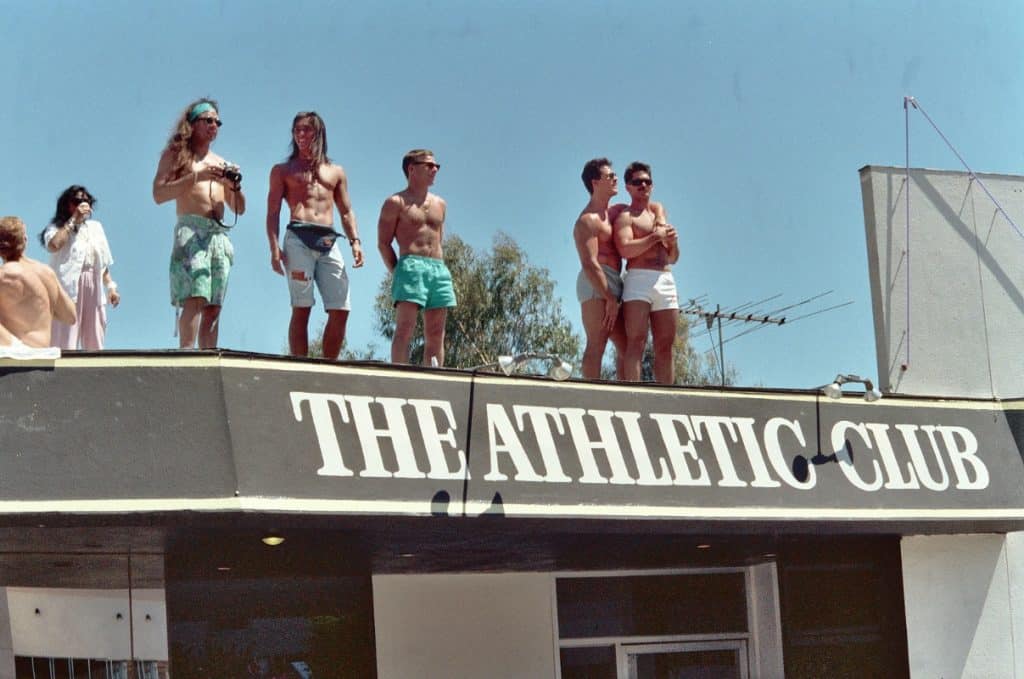
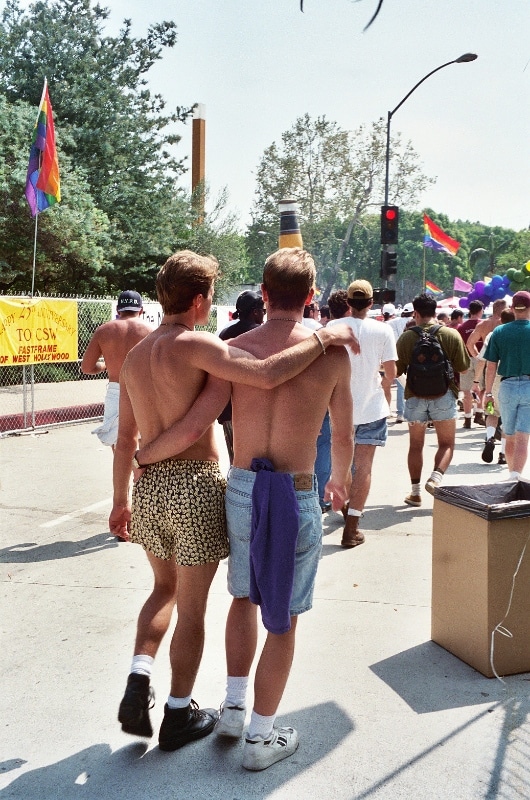
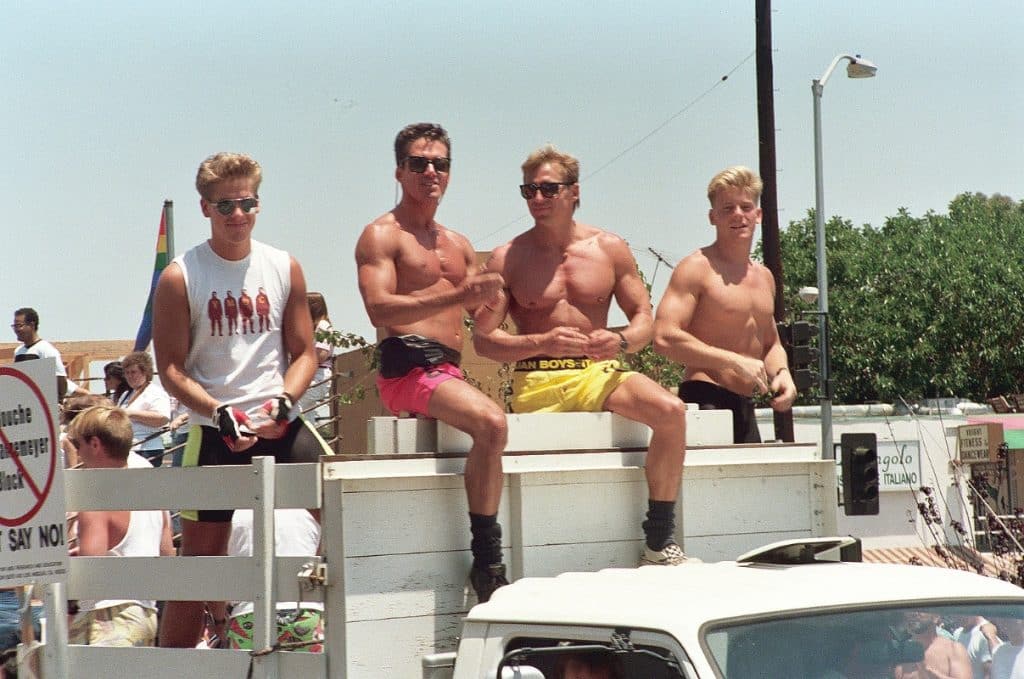
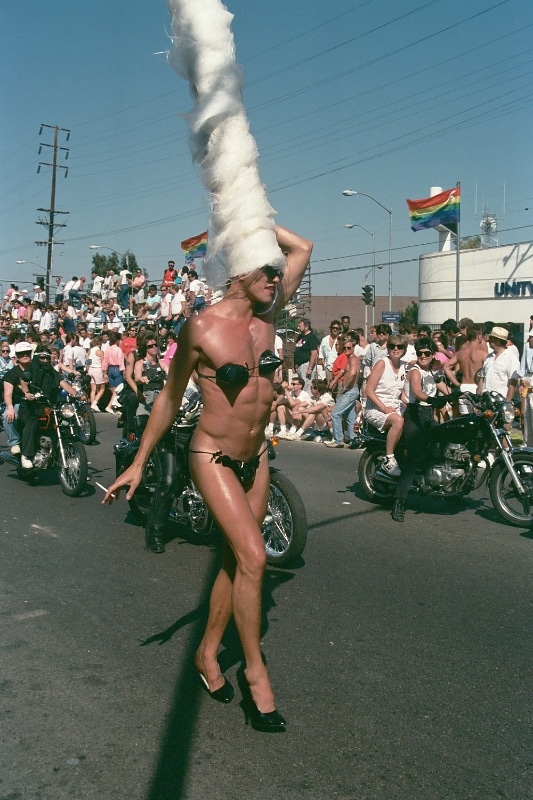
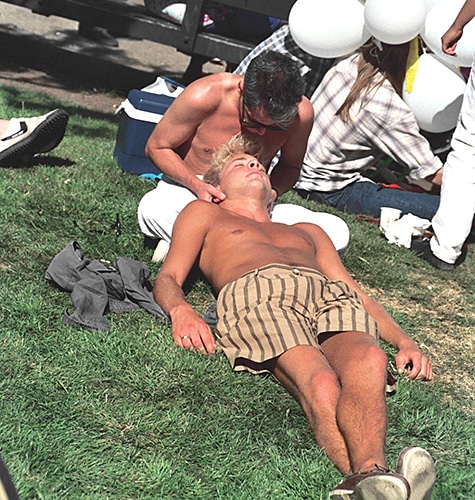
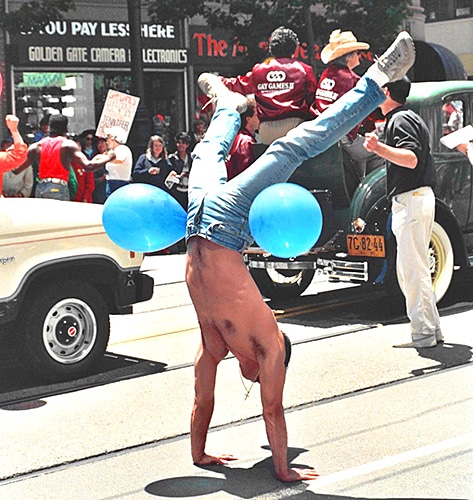
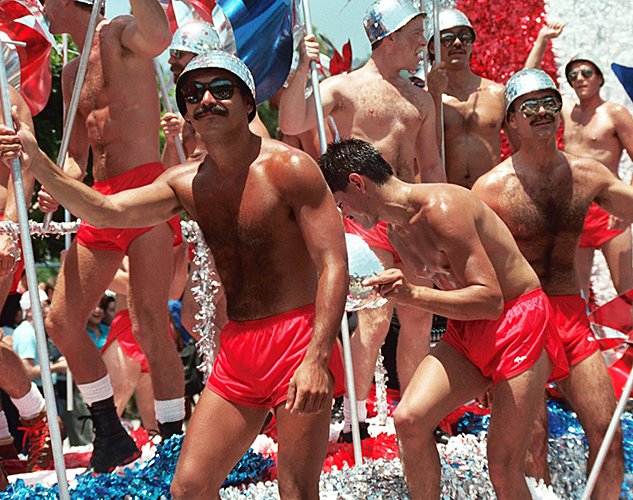
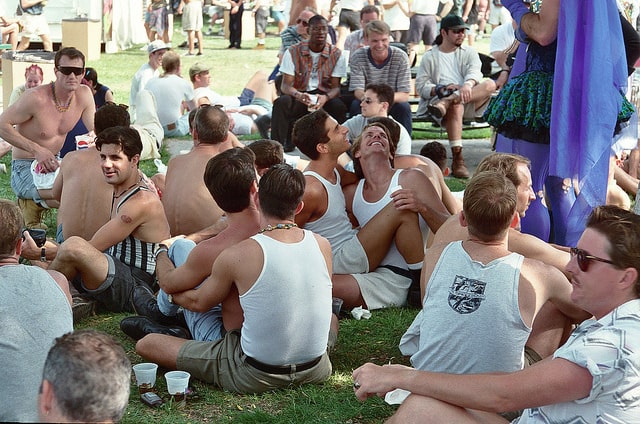
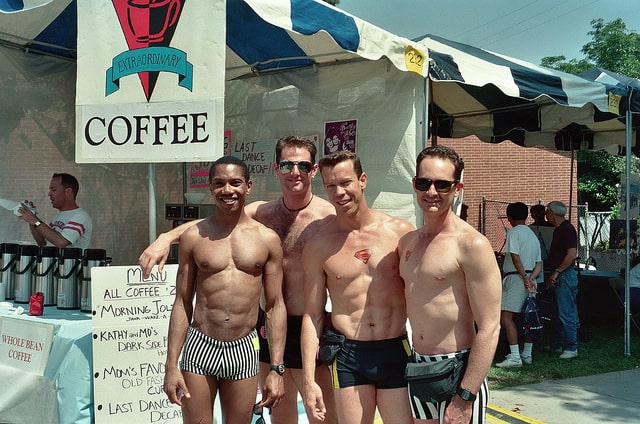
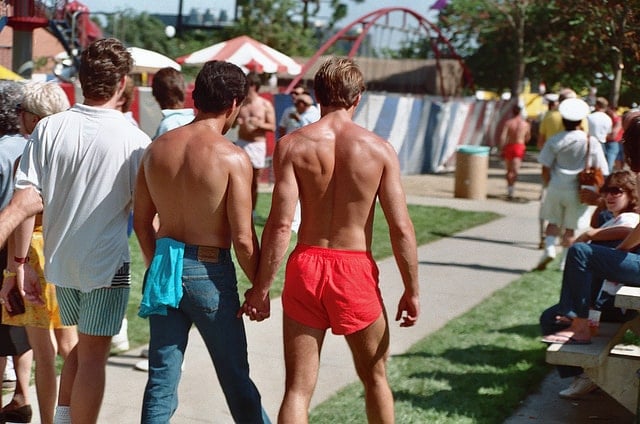
More Stories

